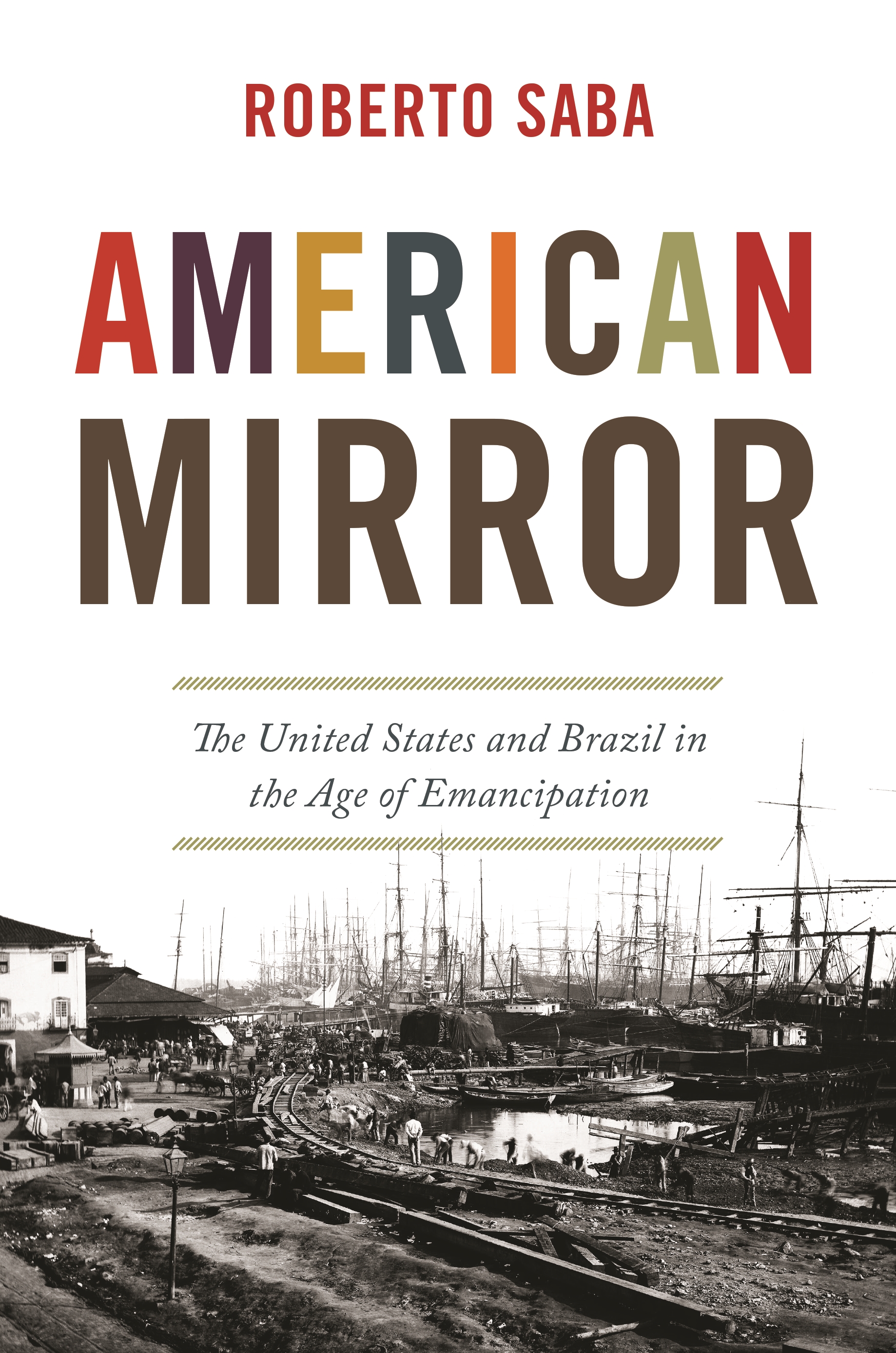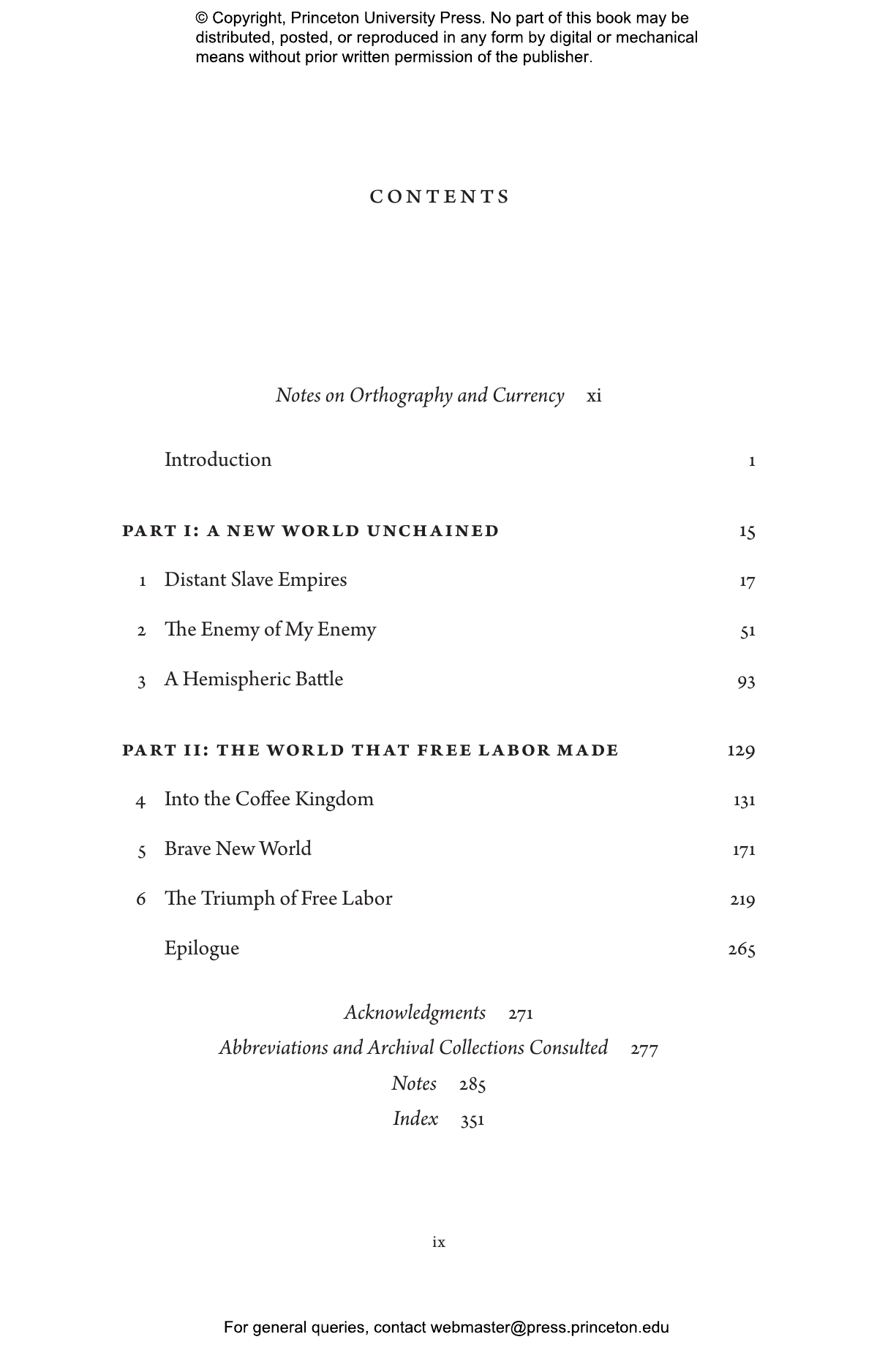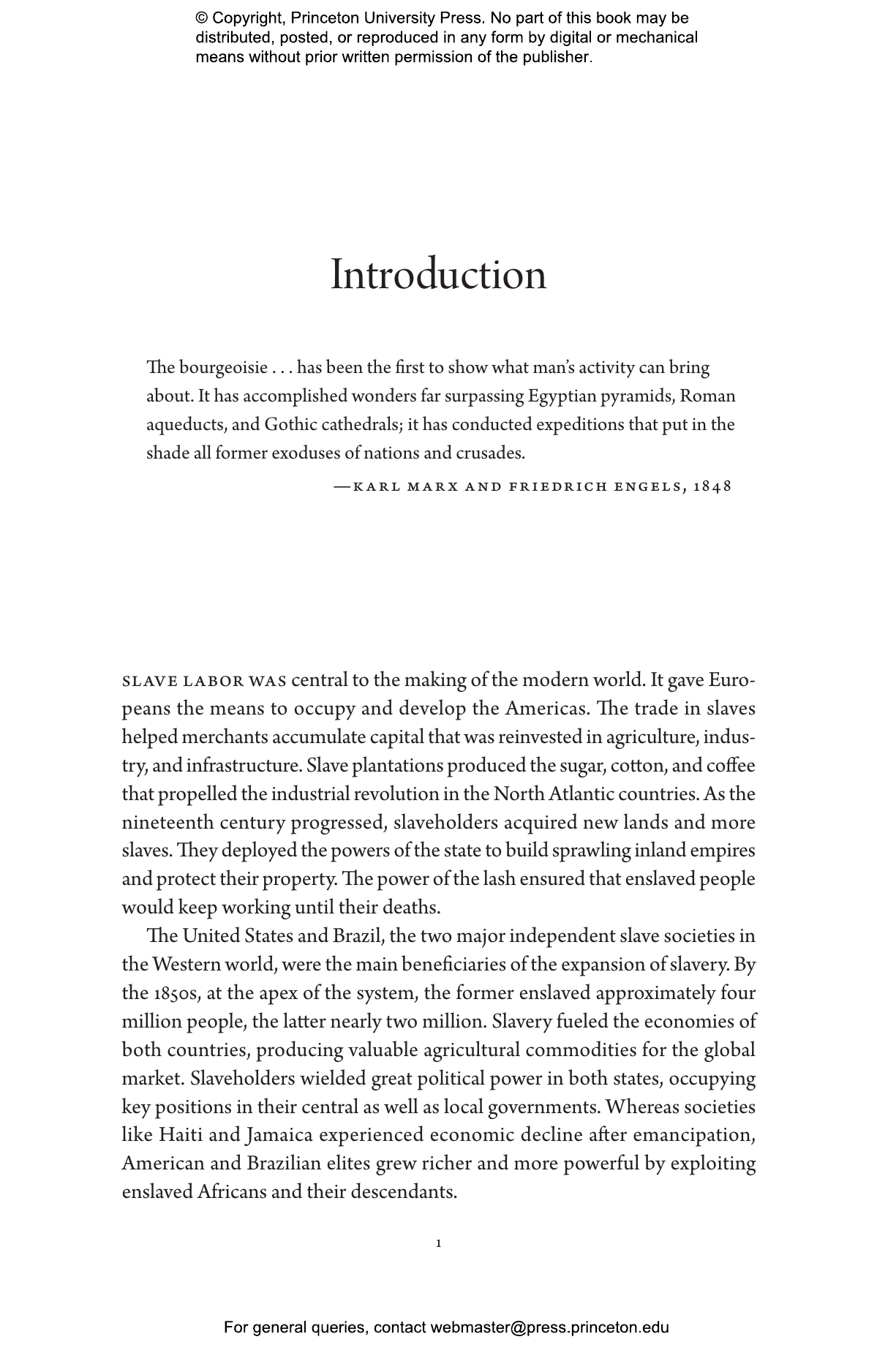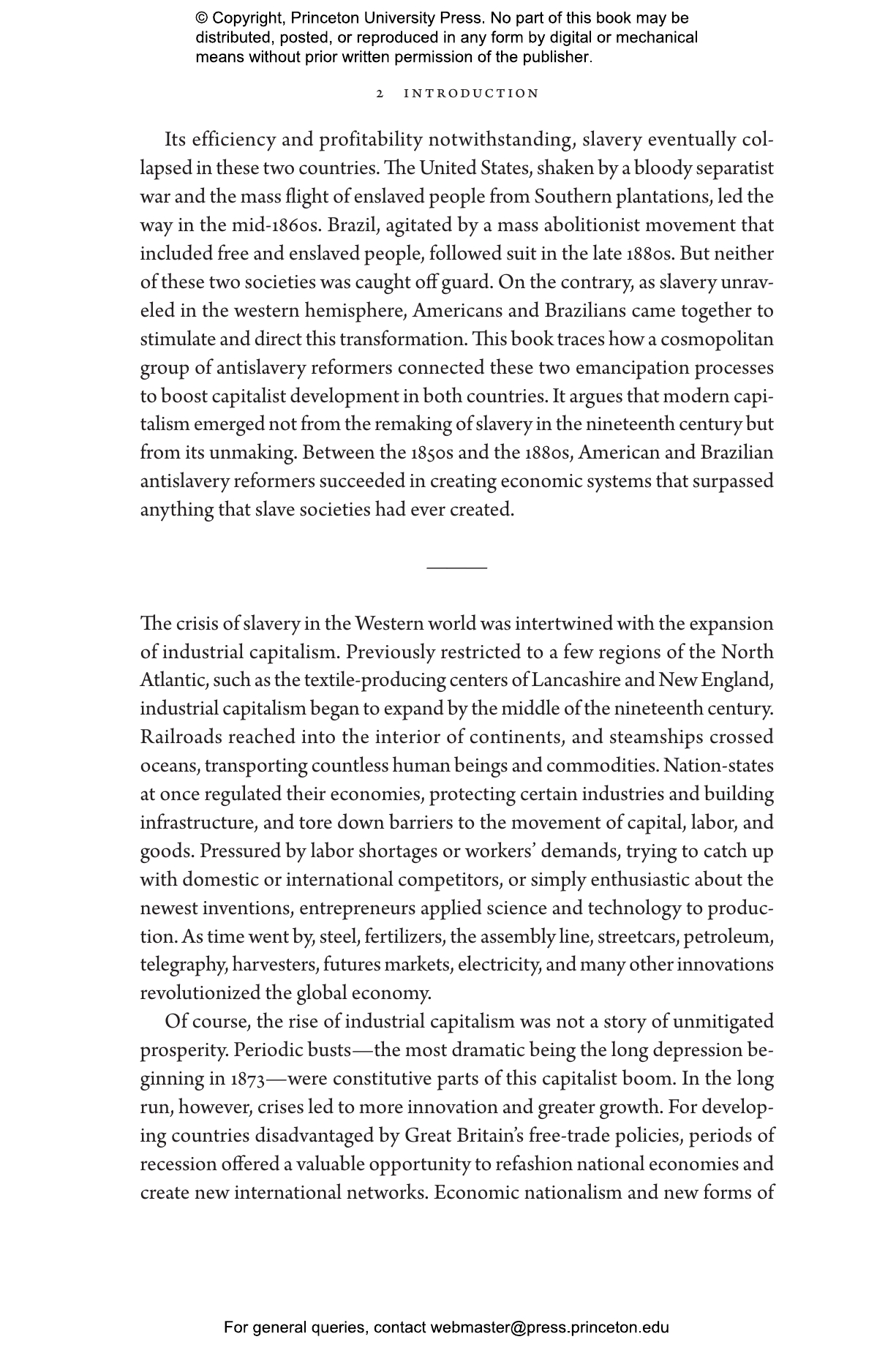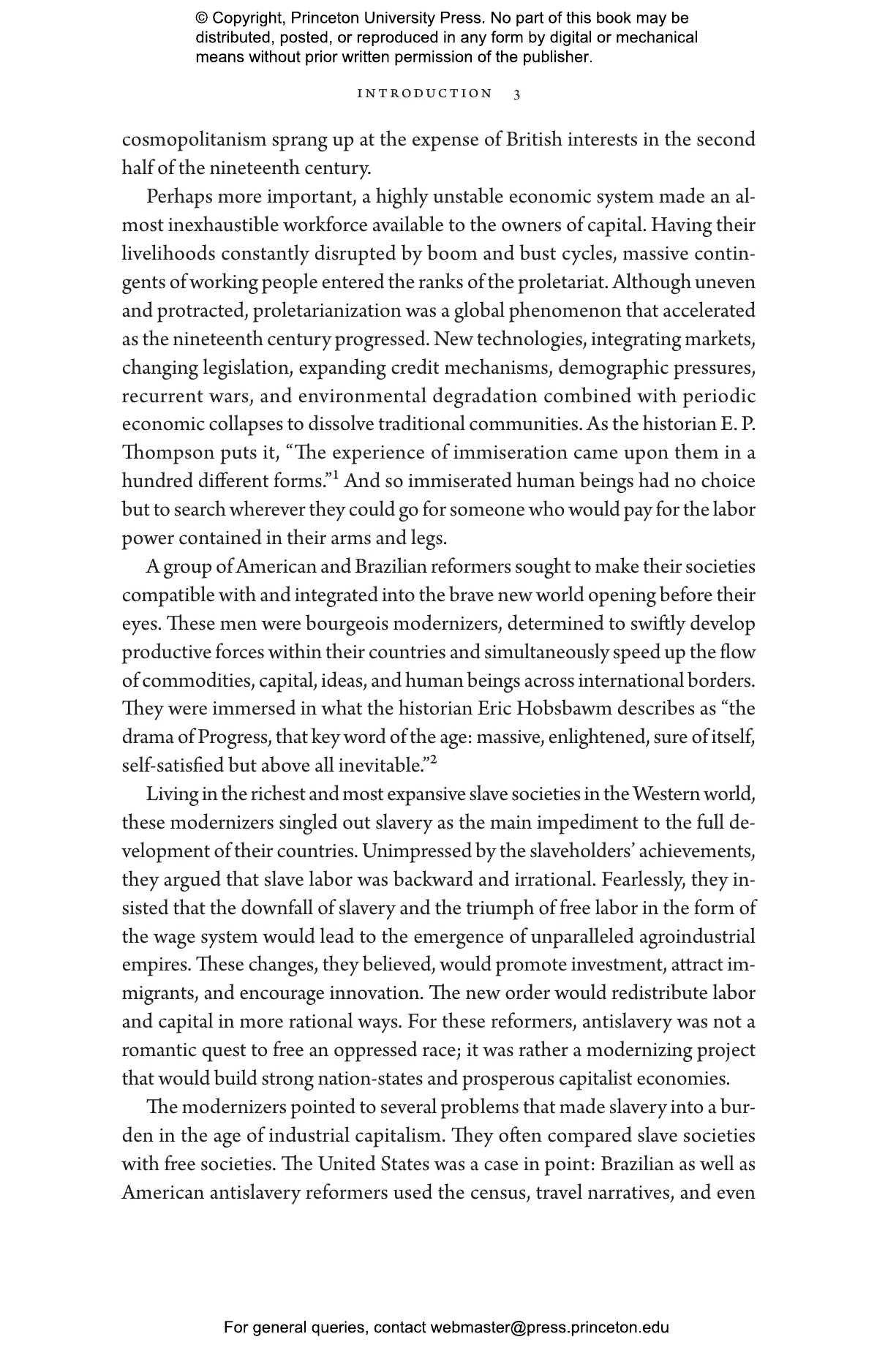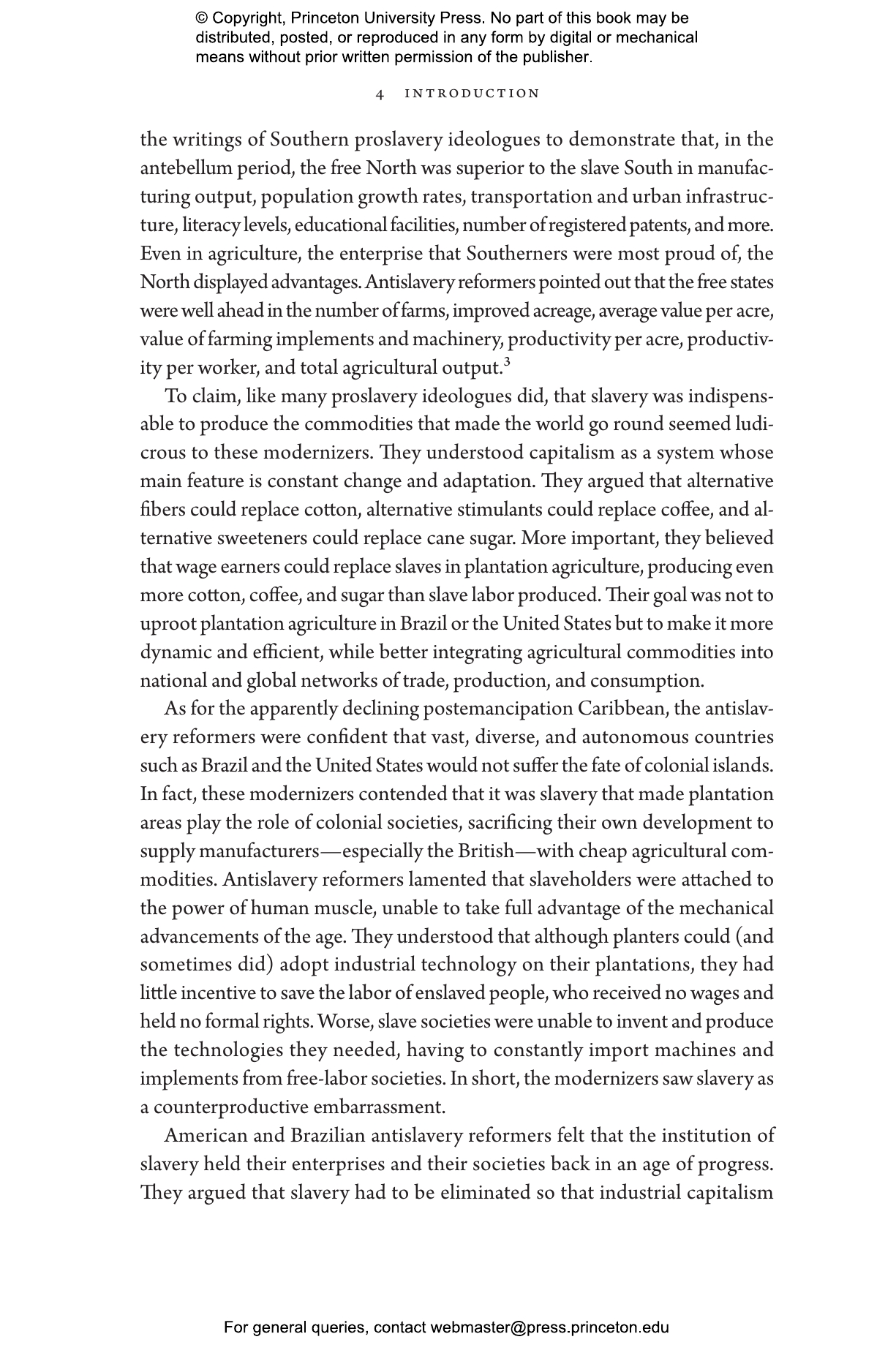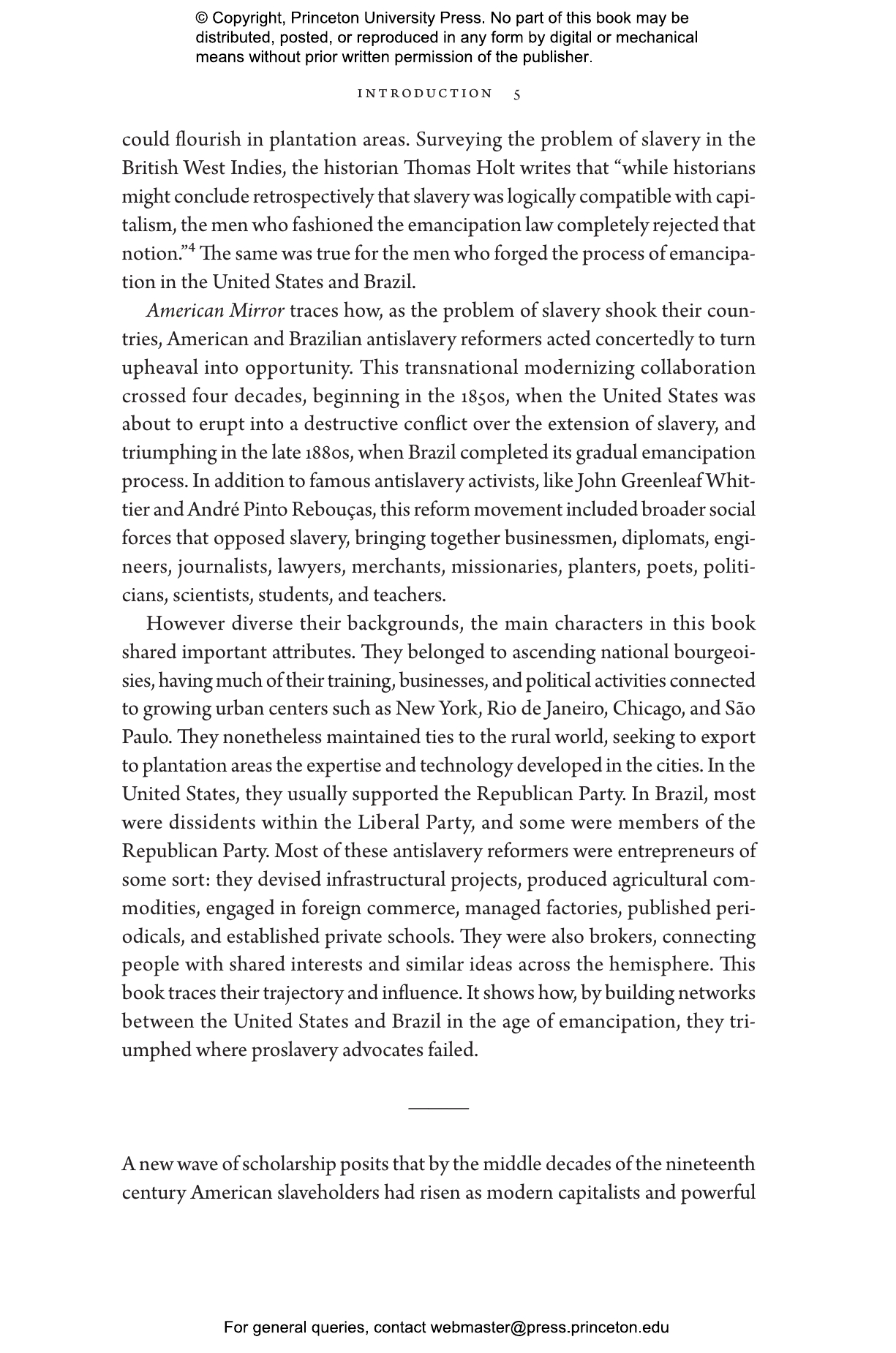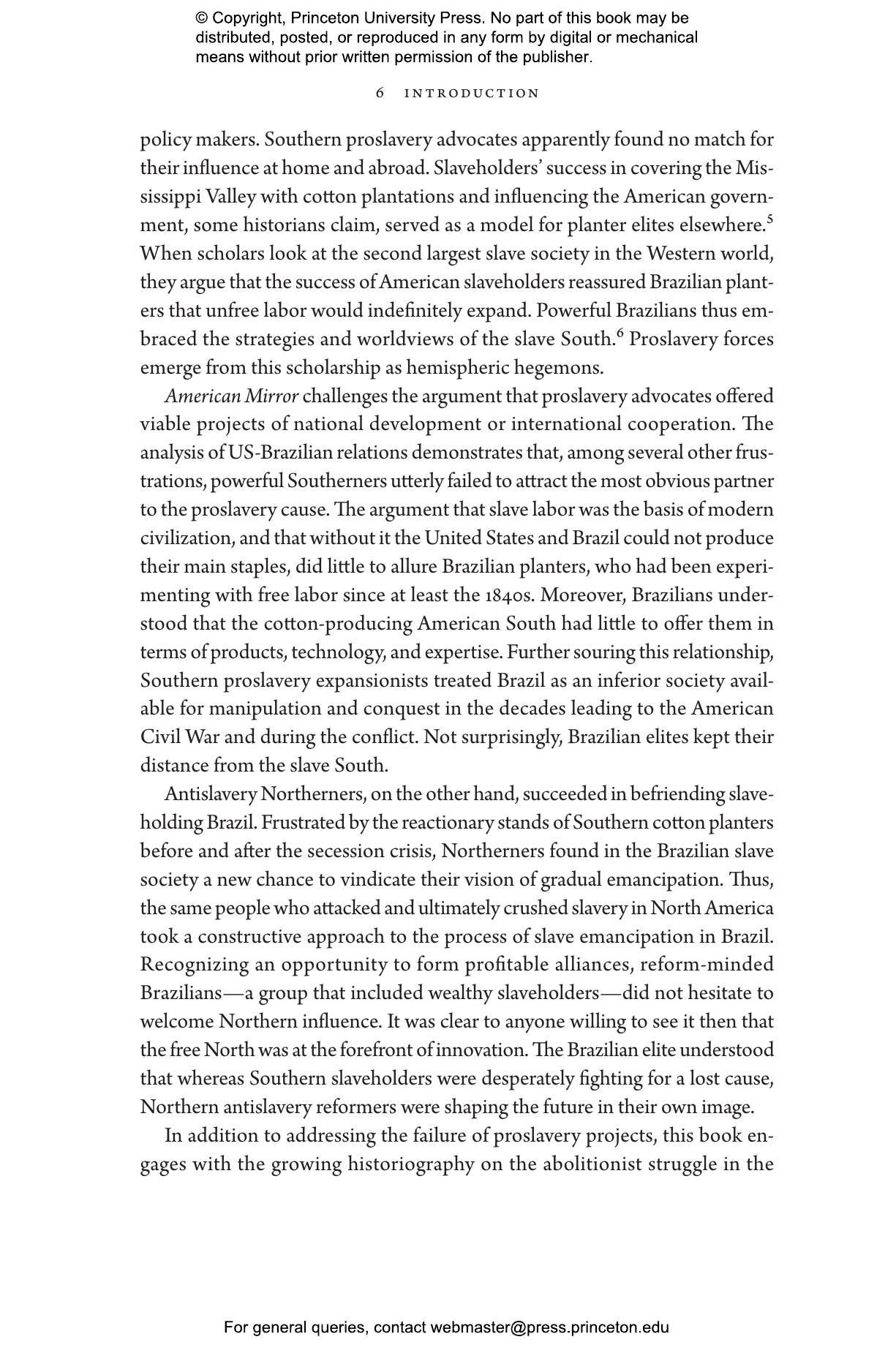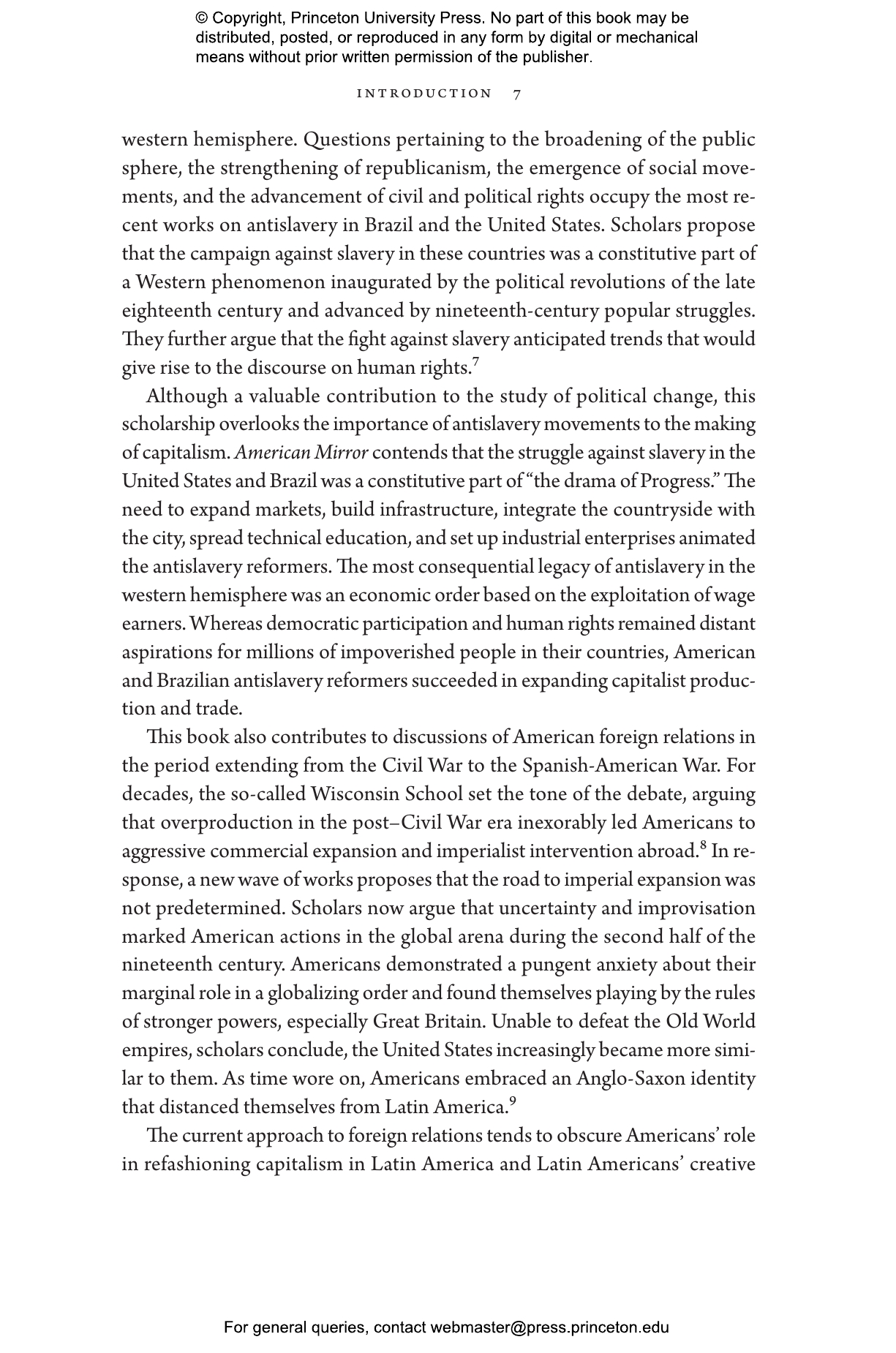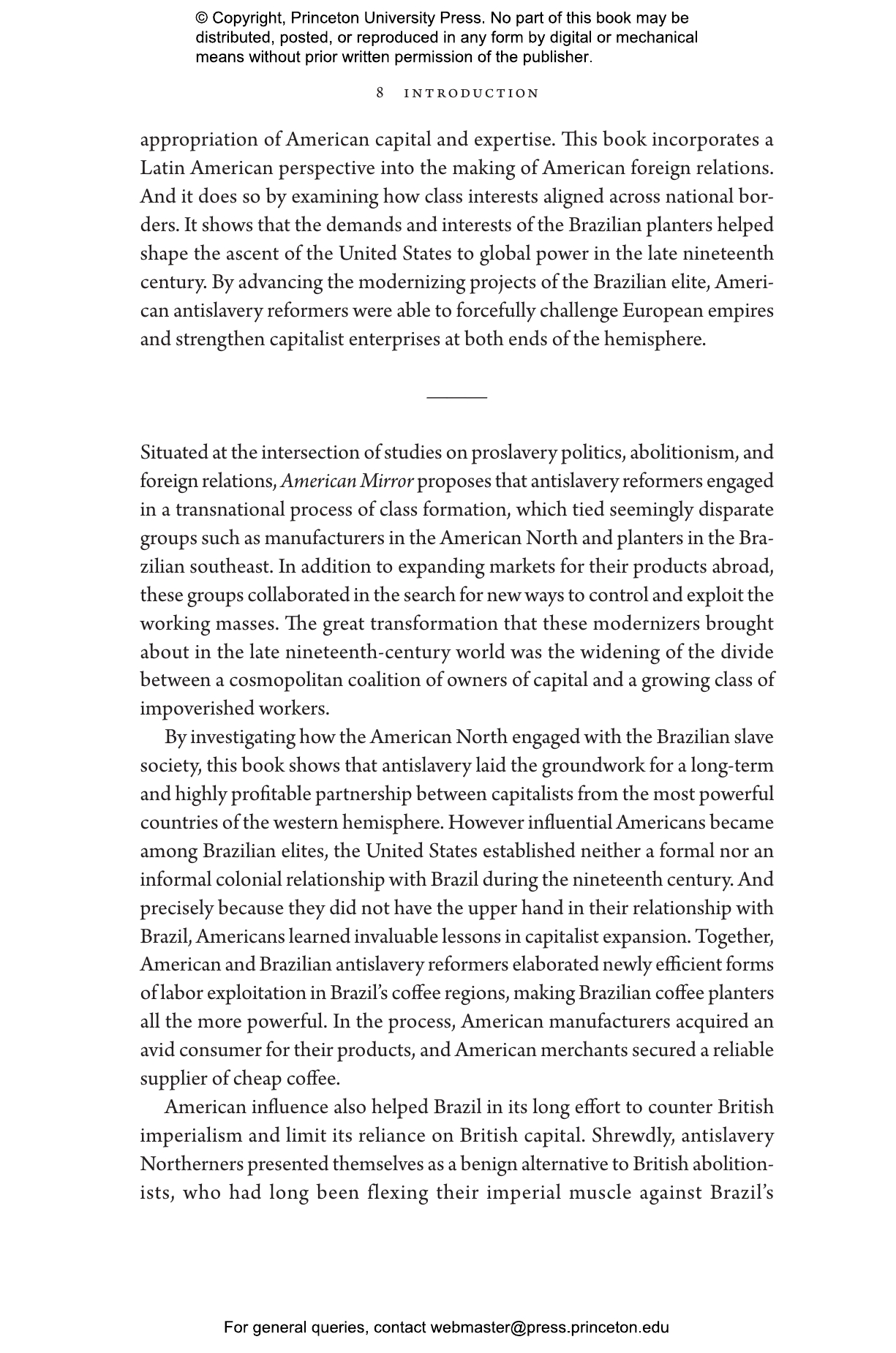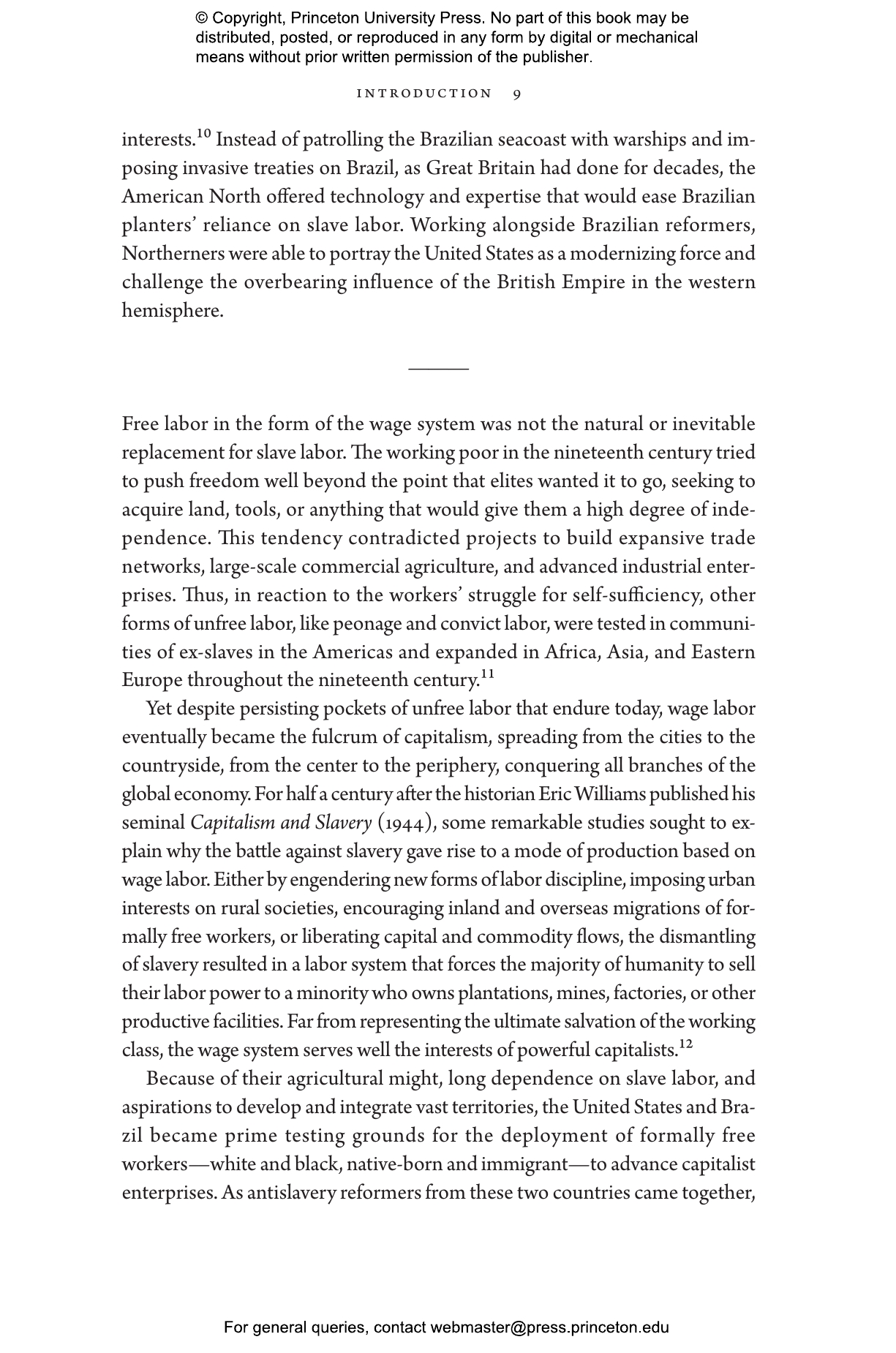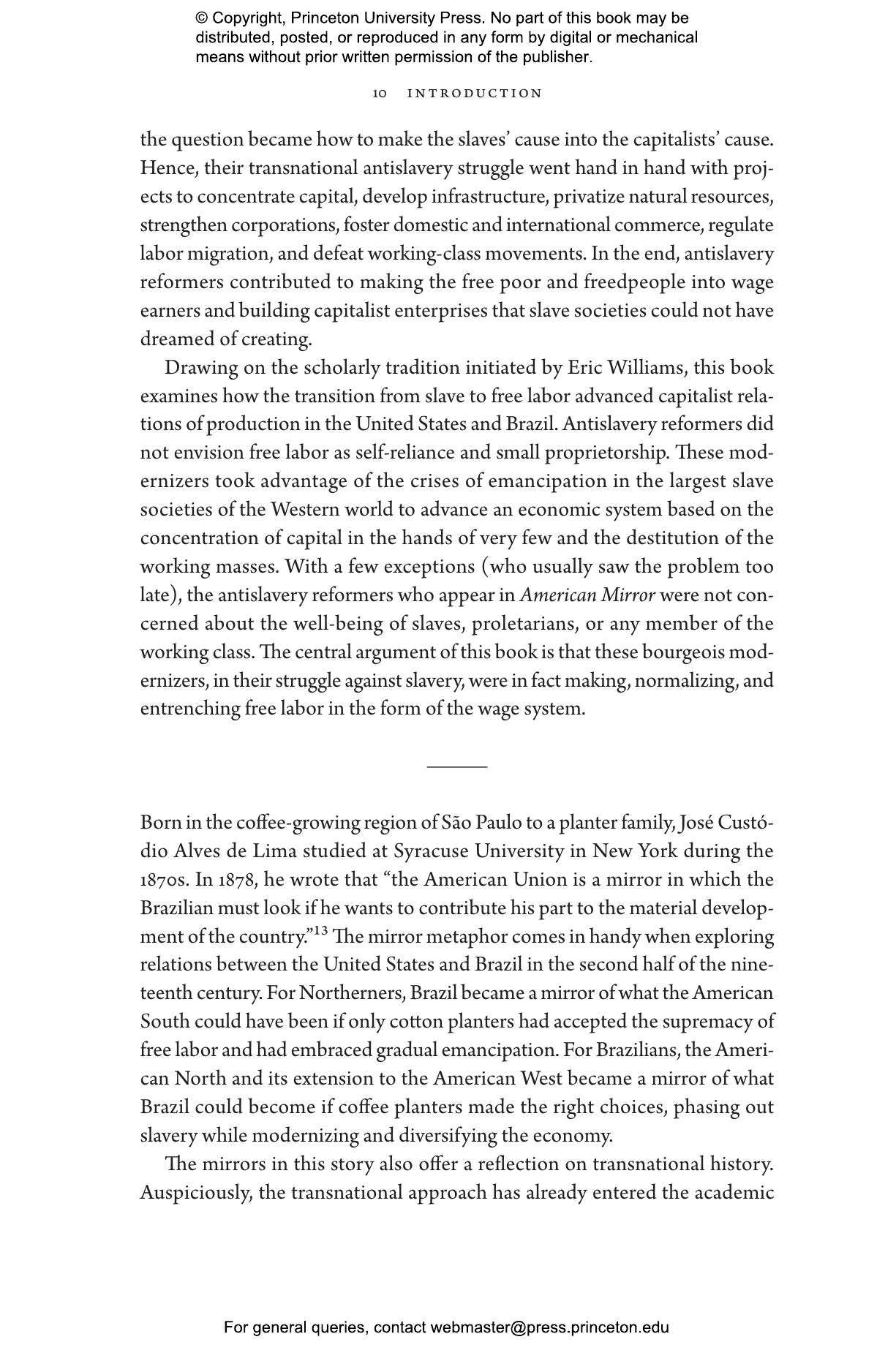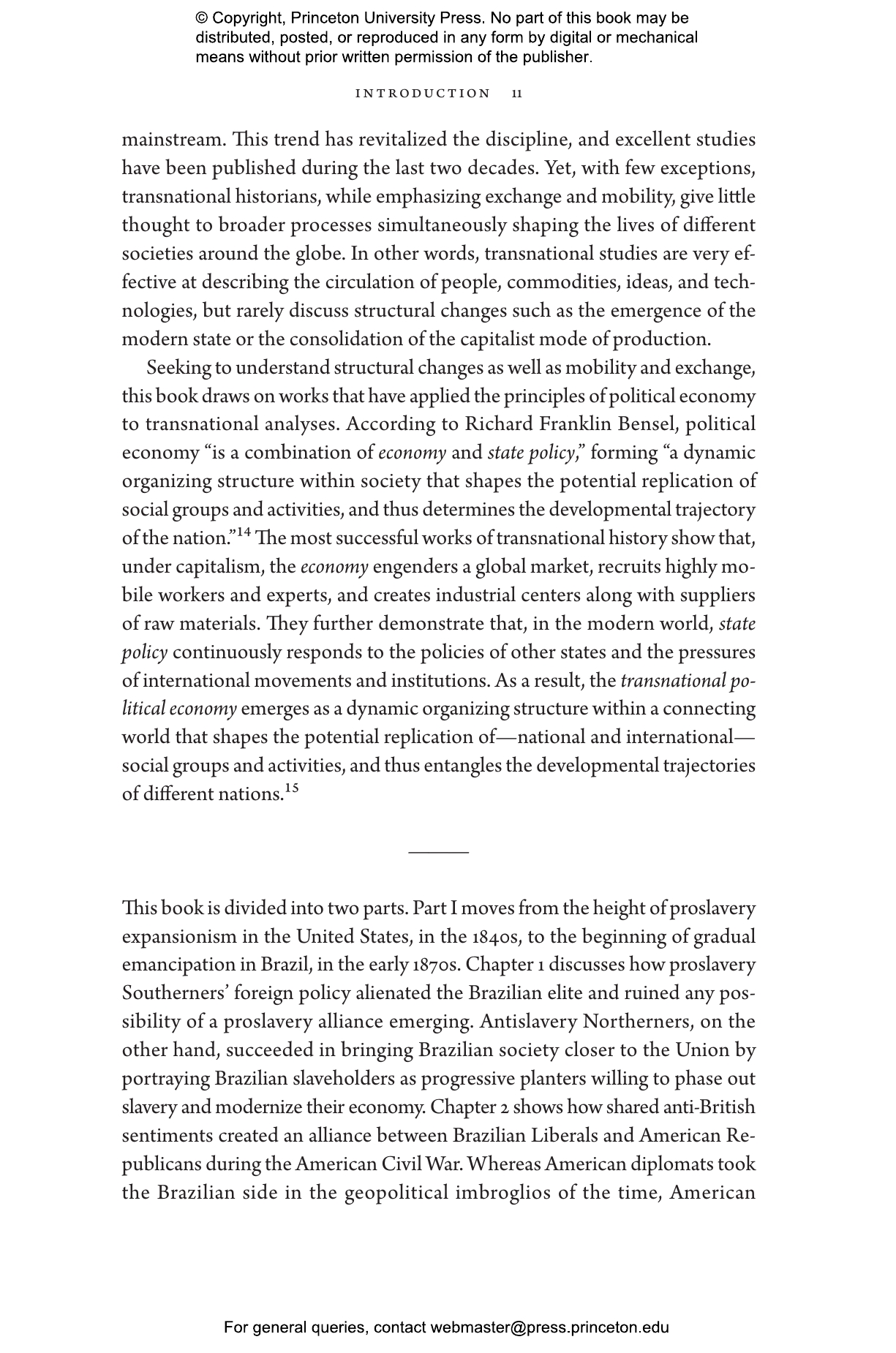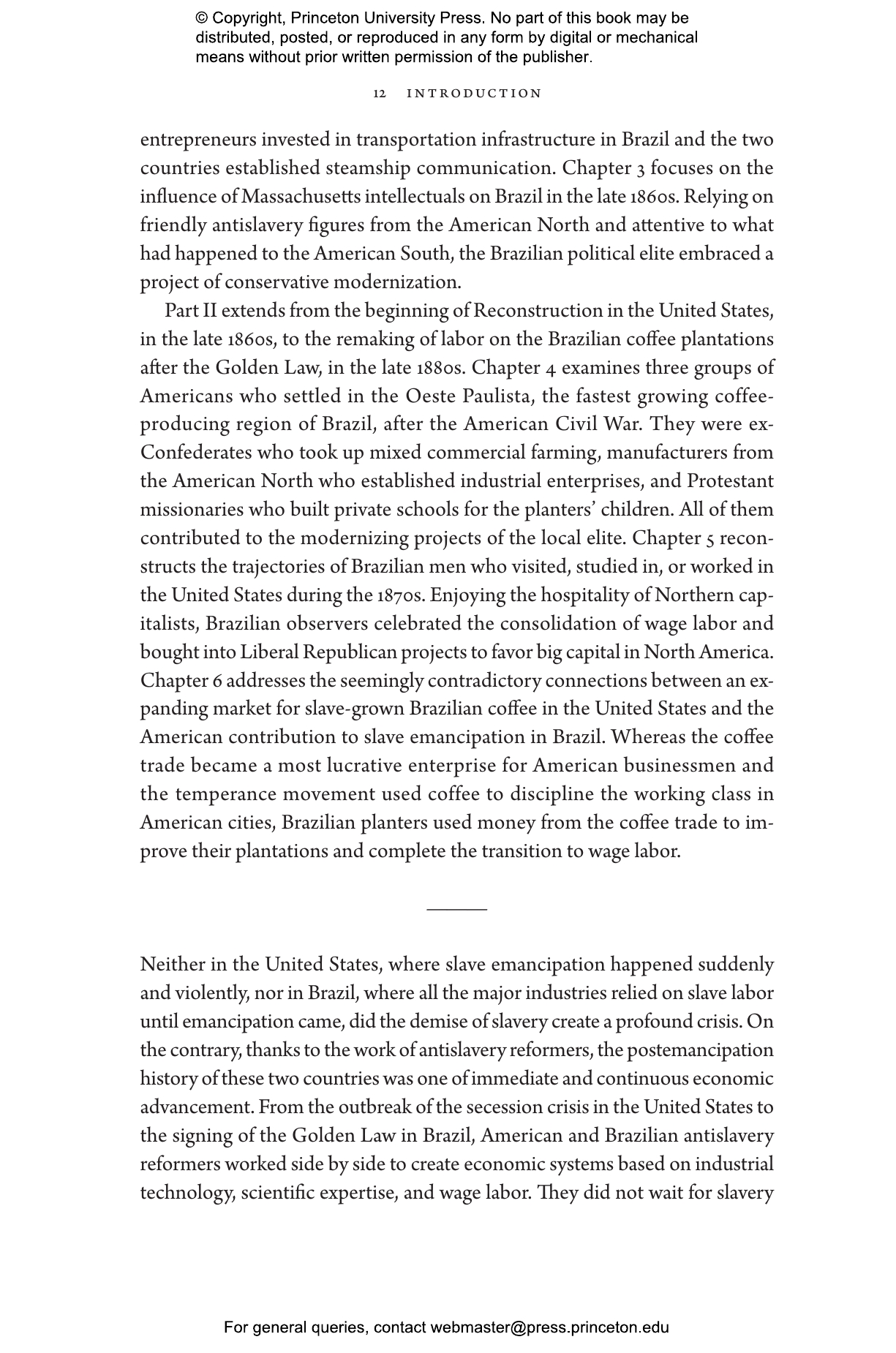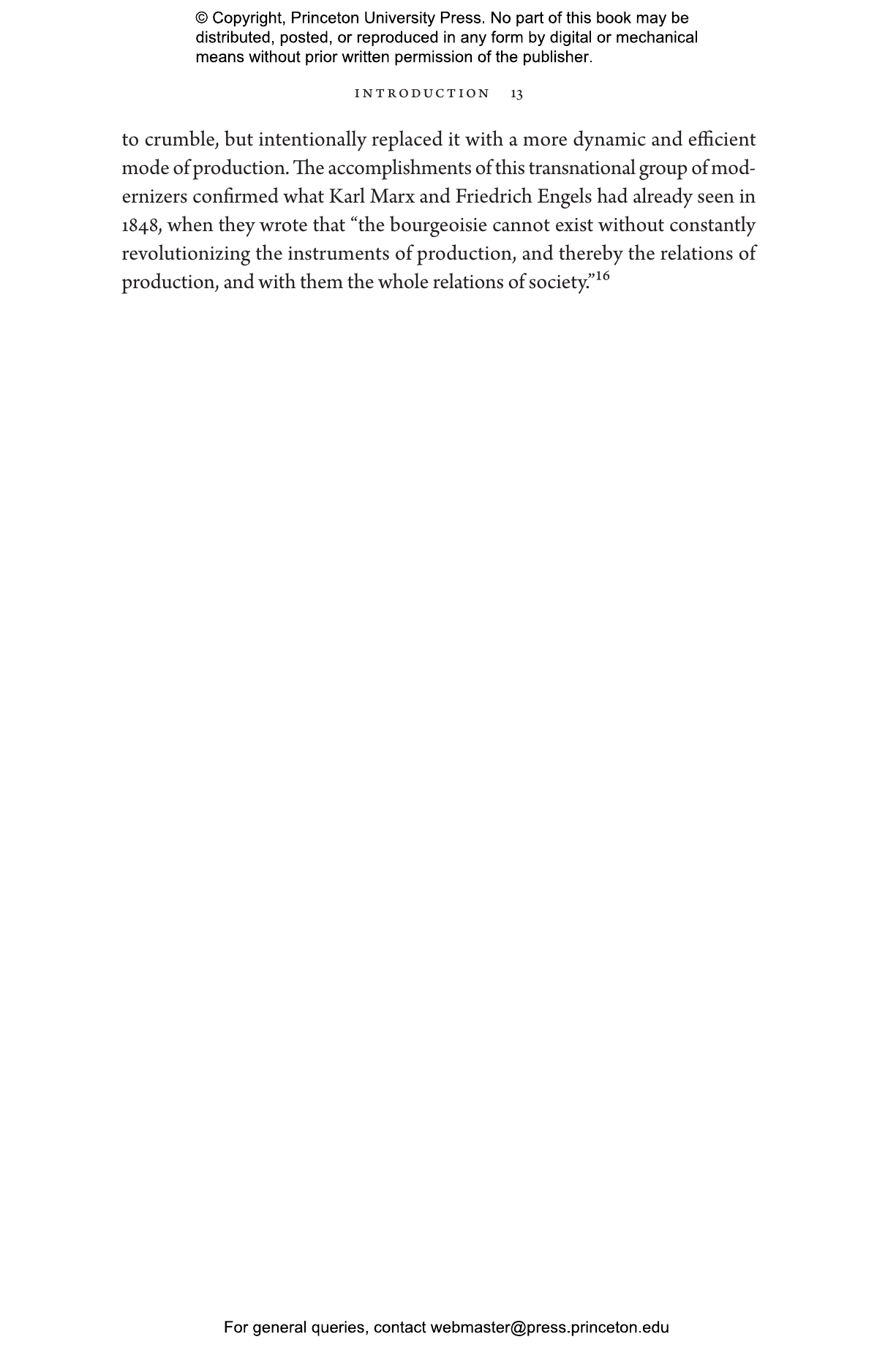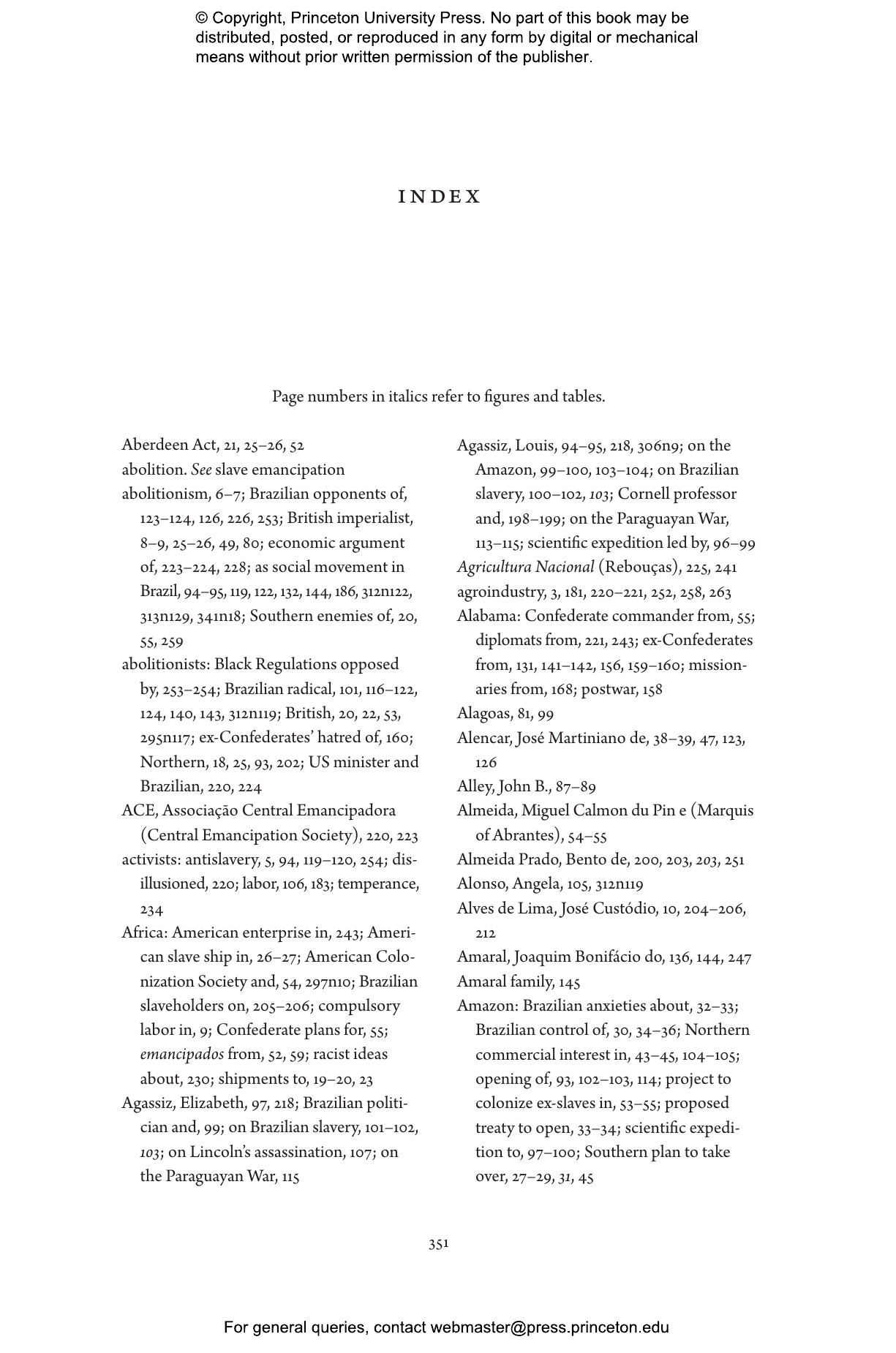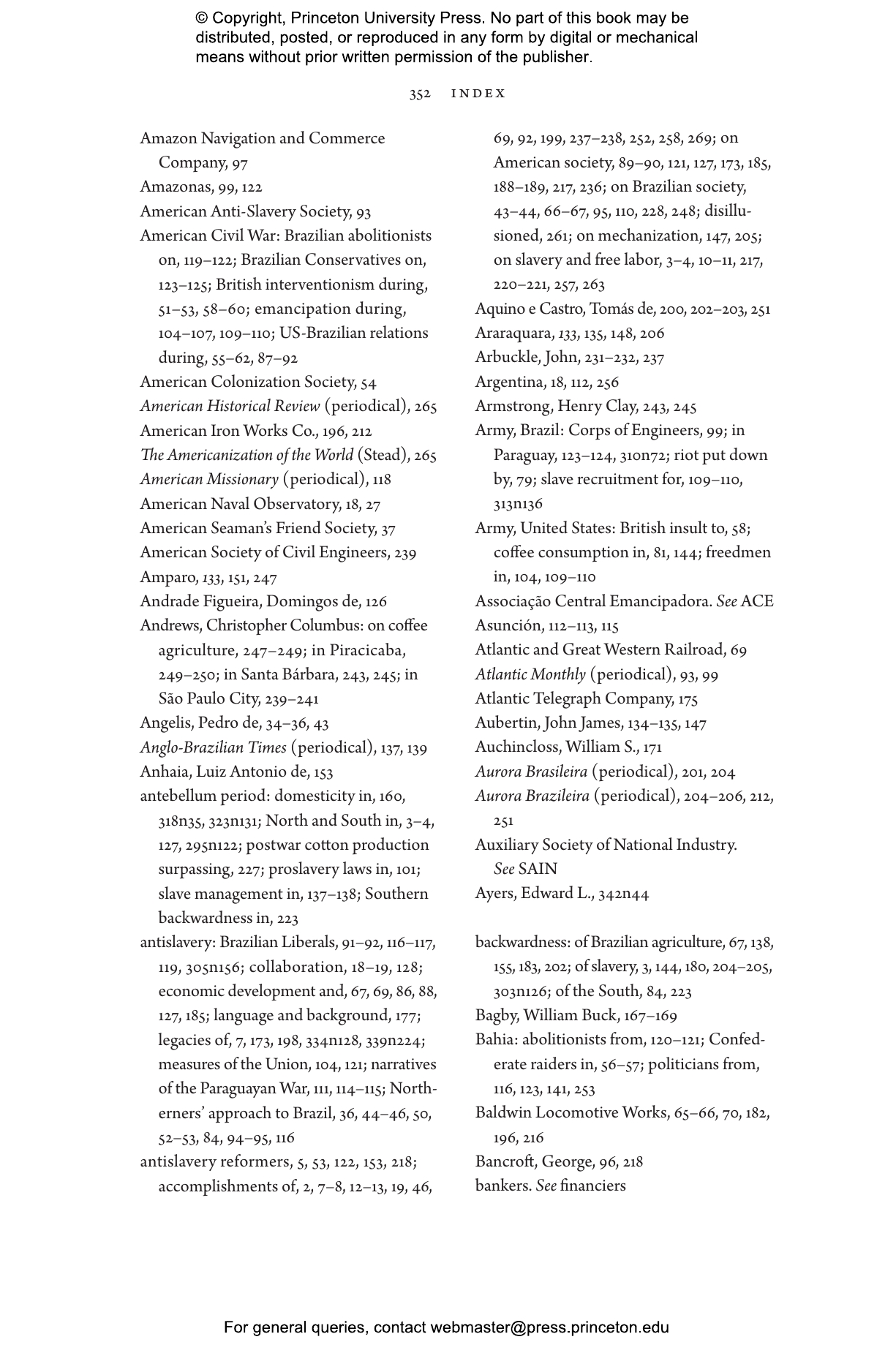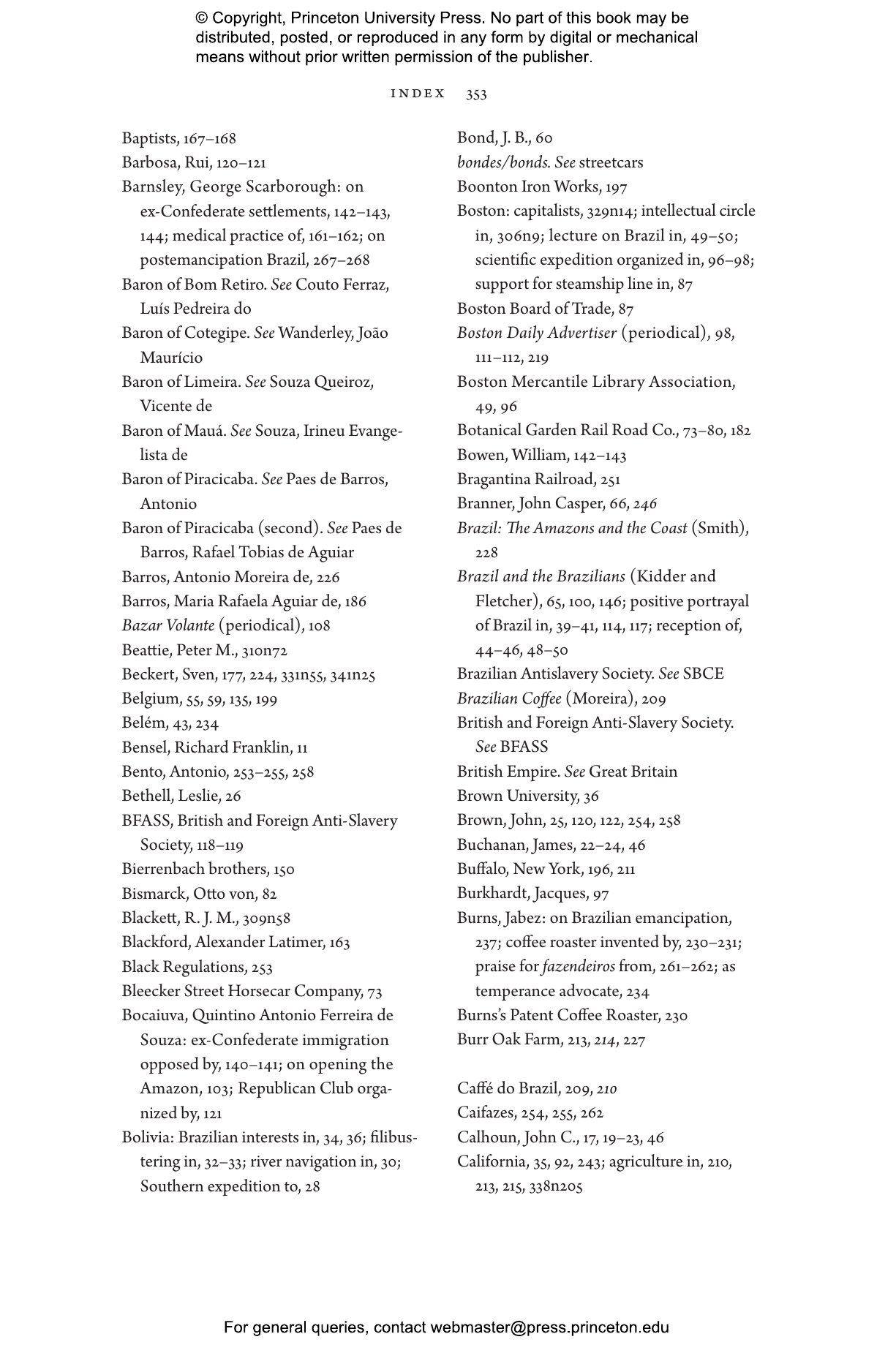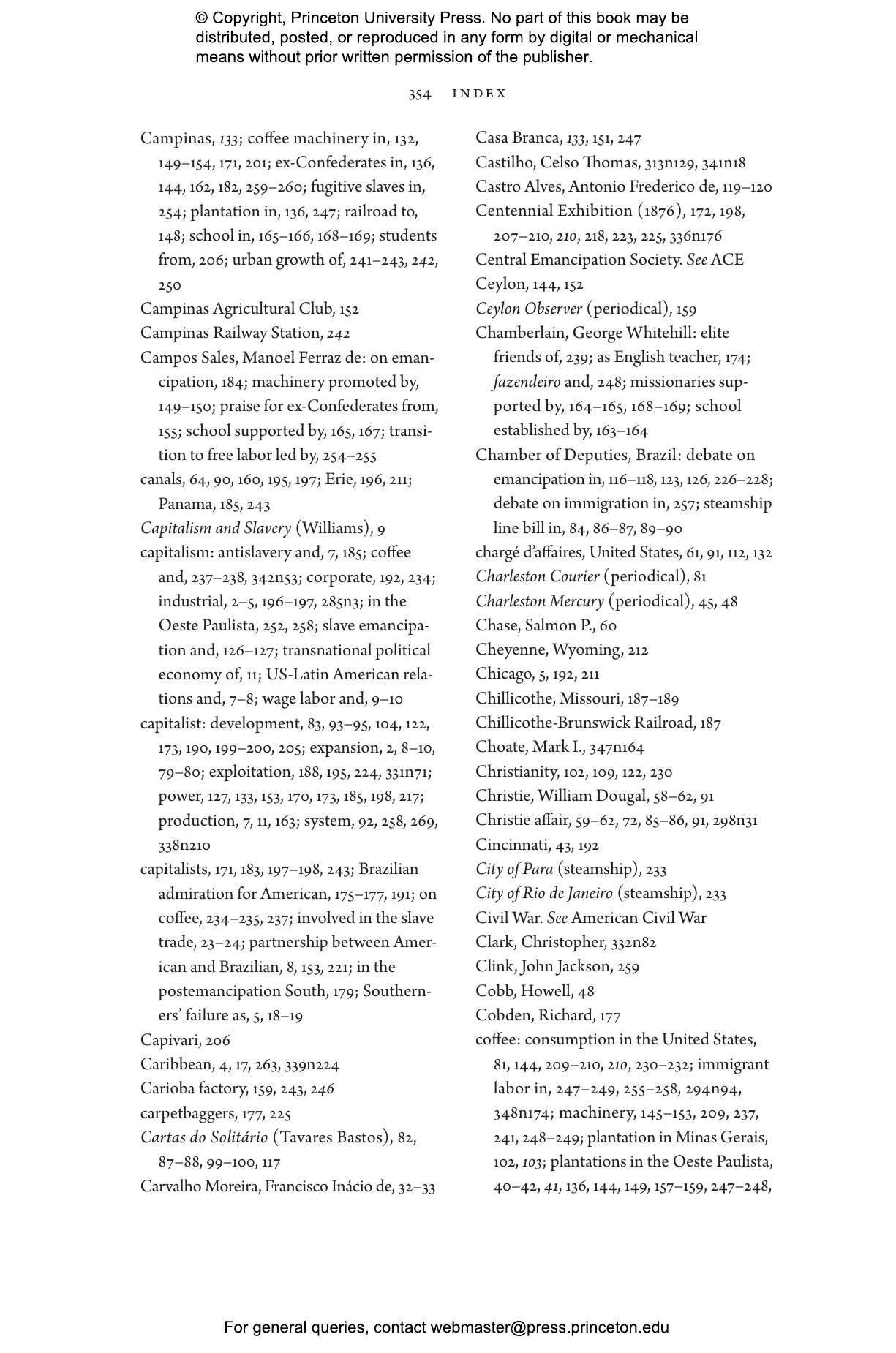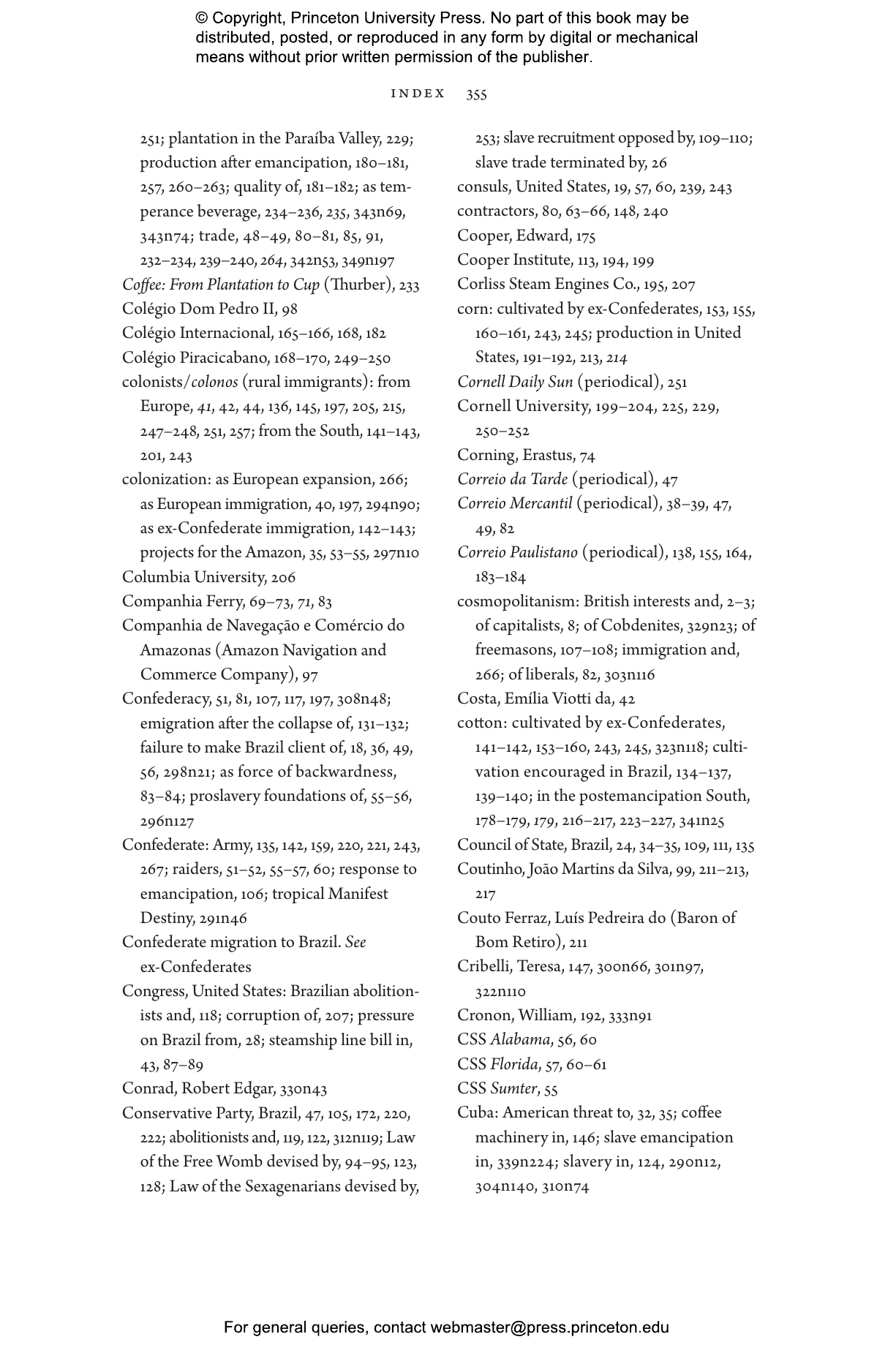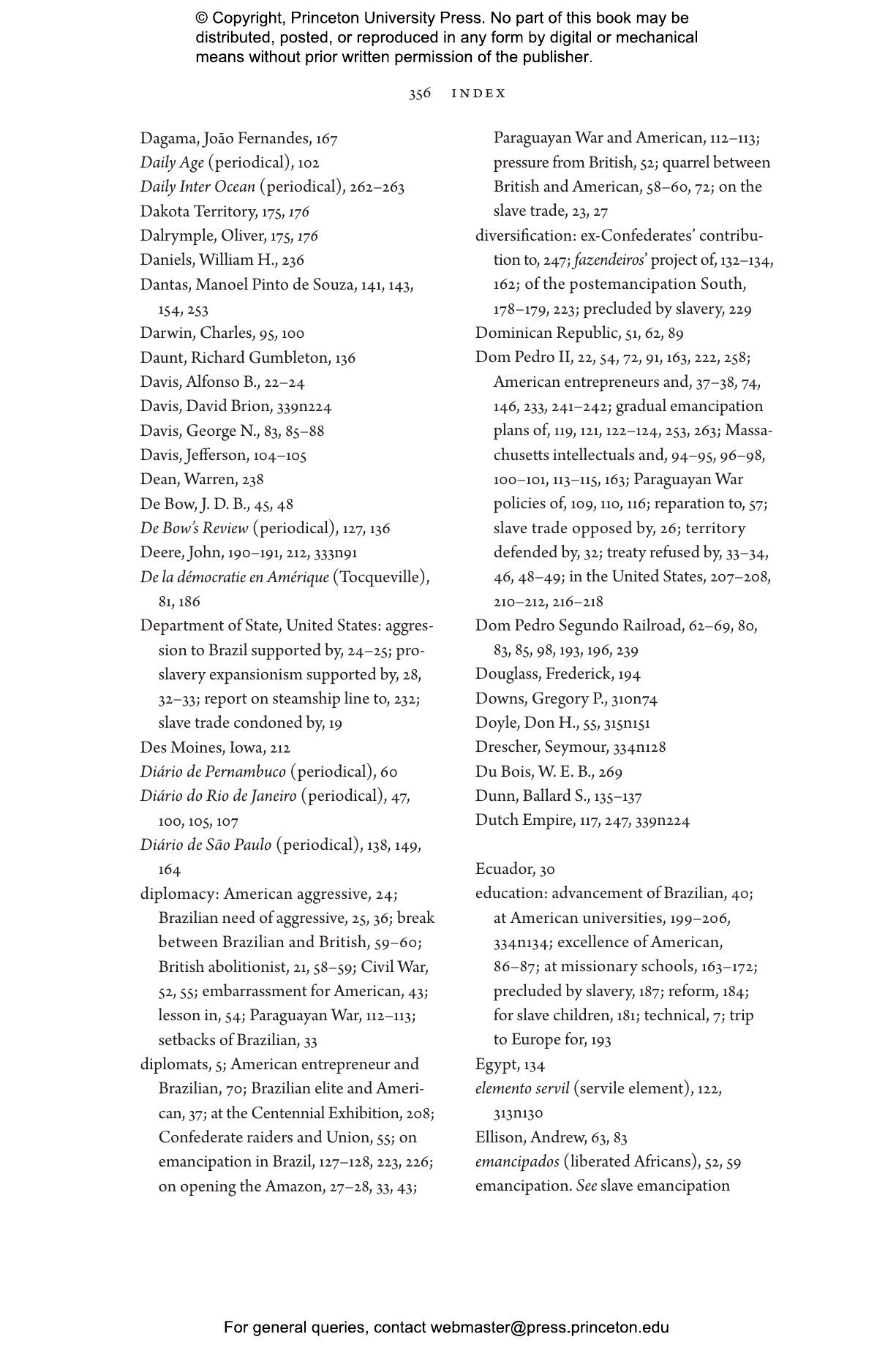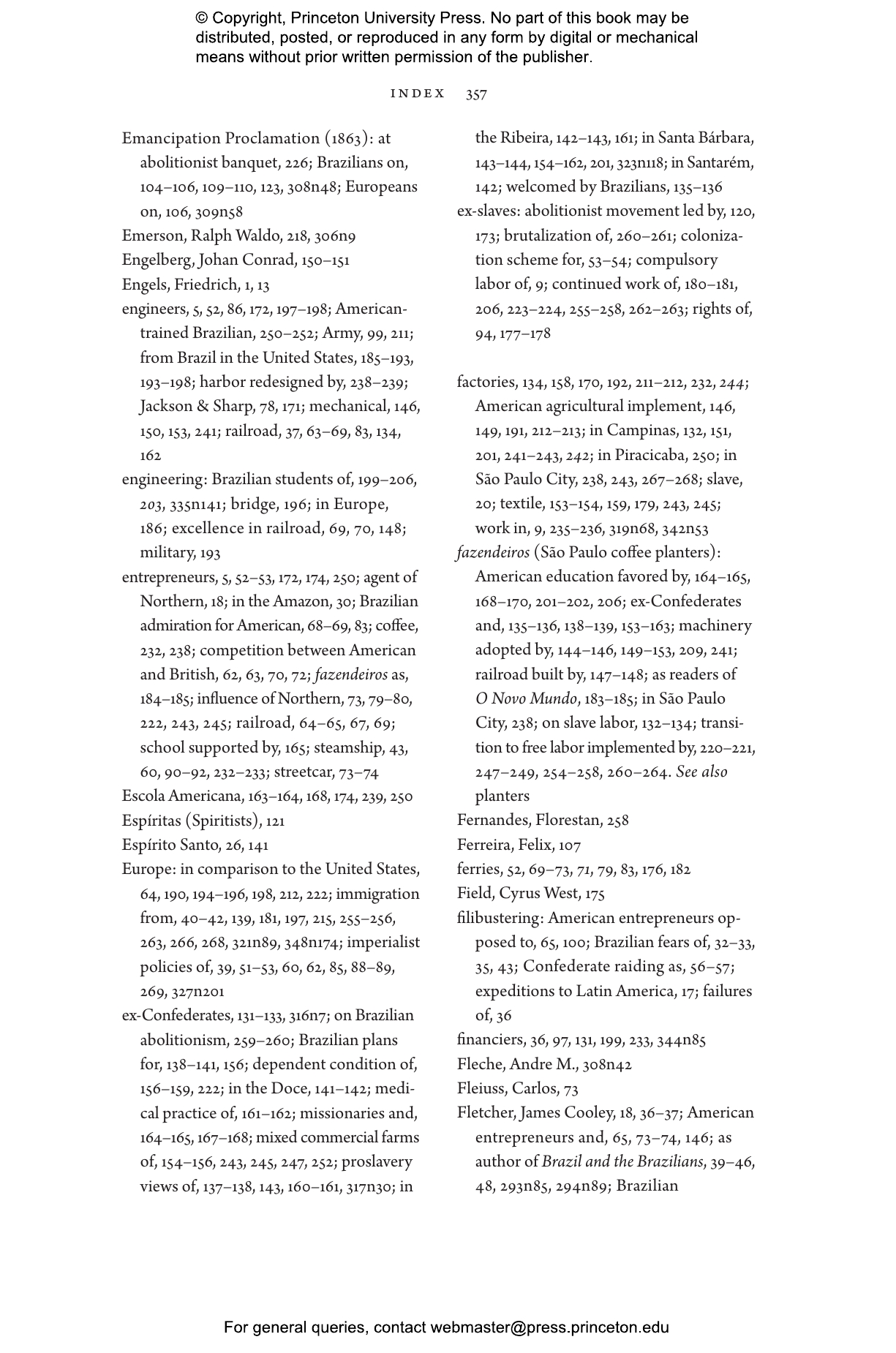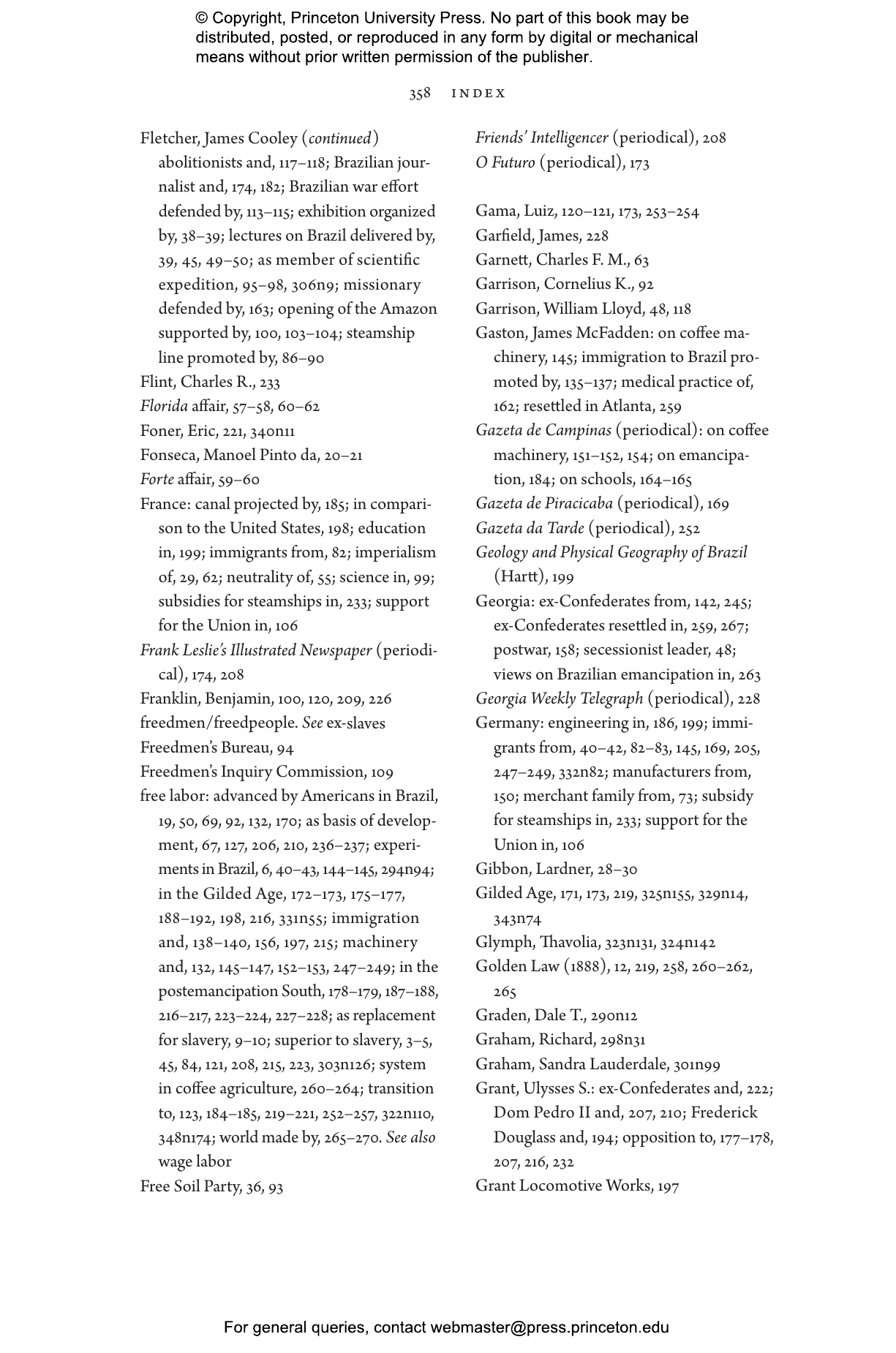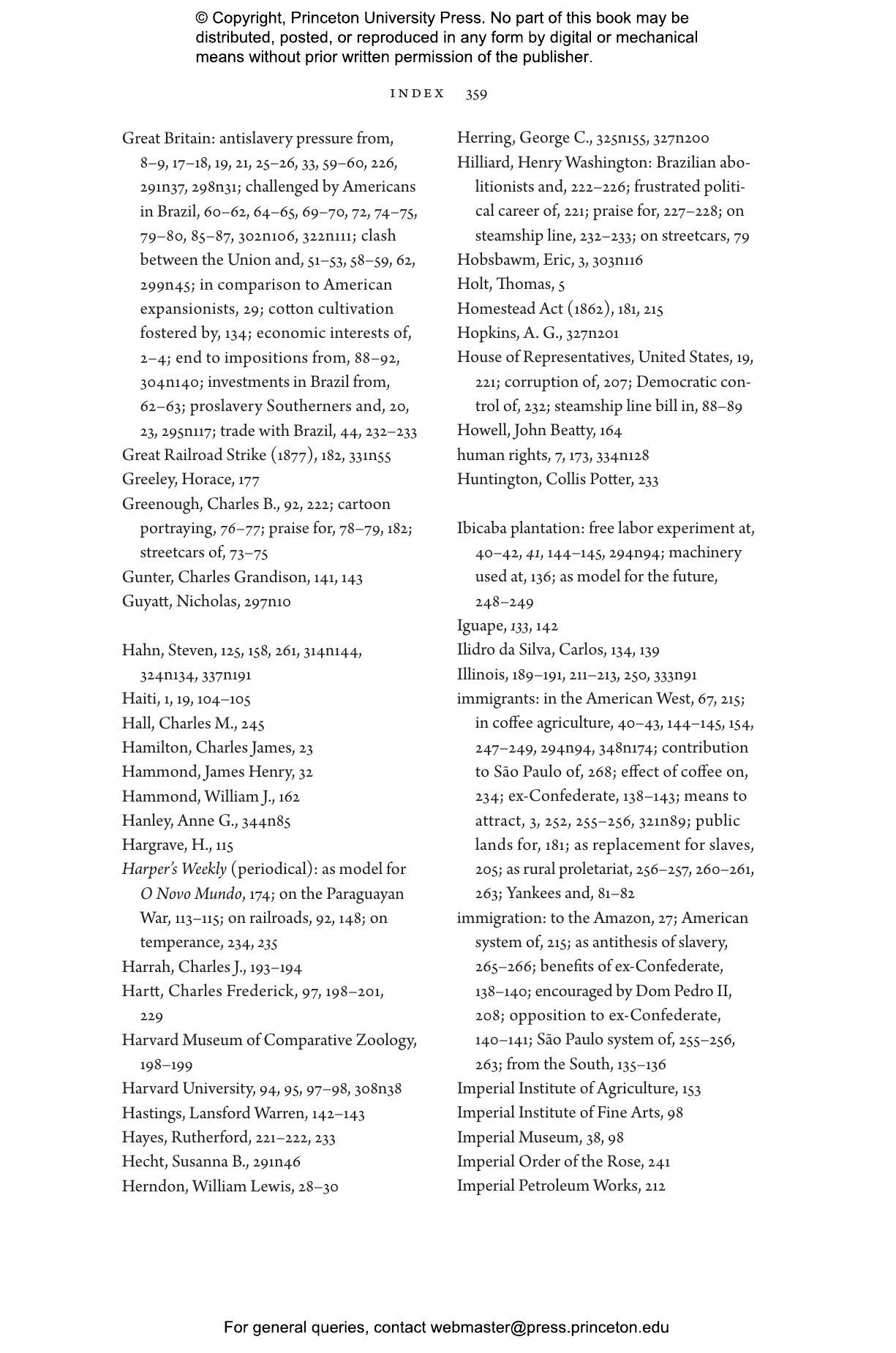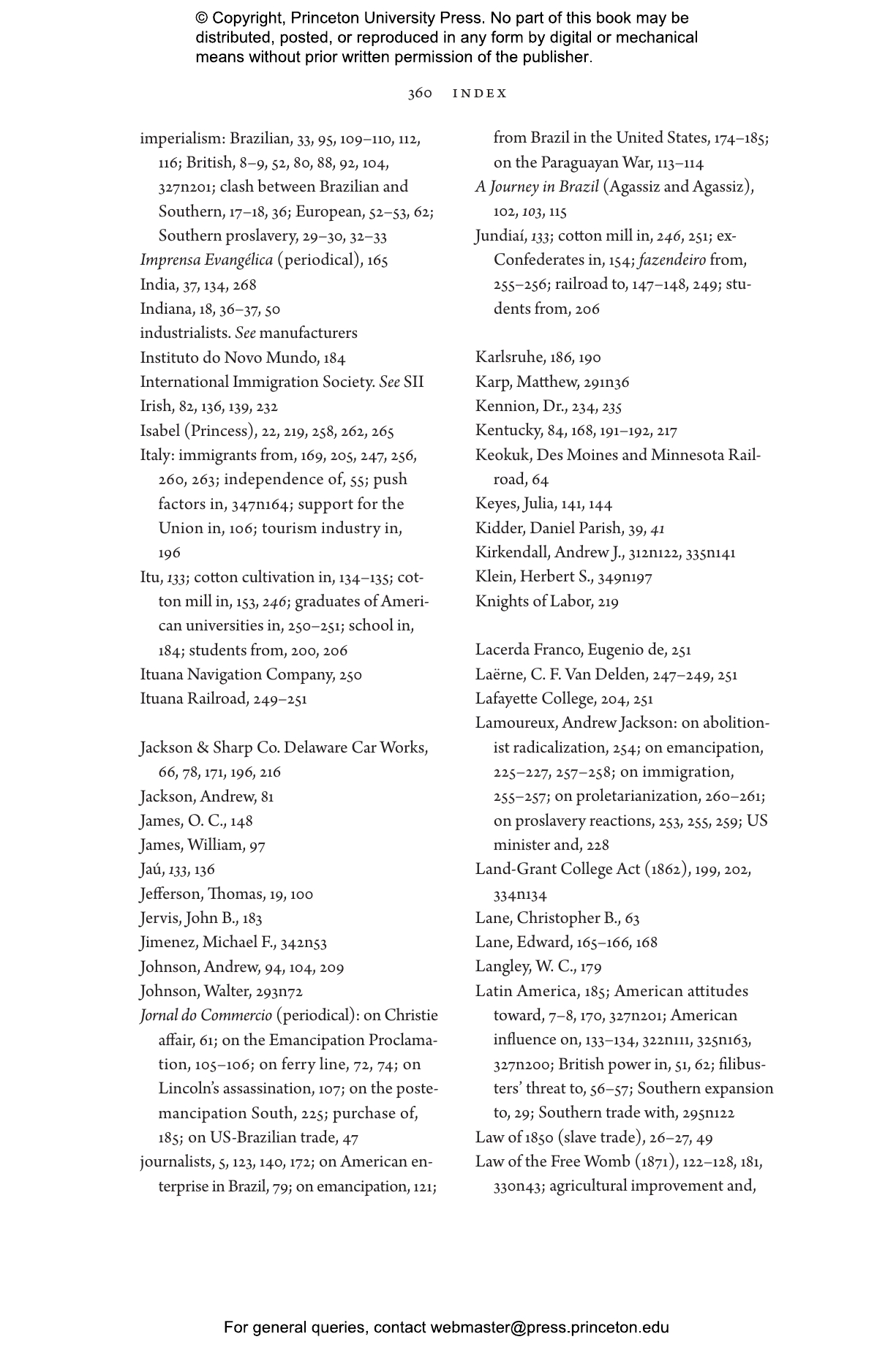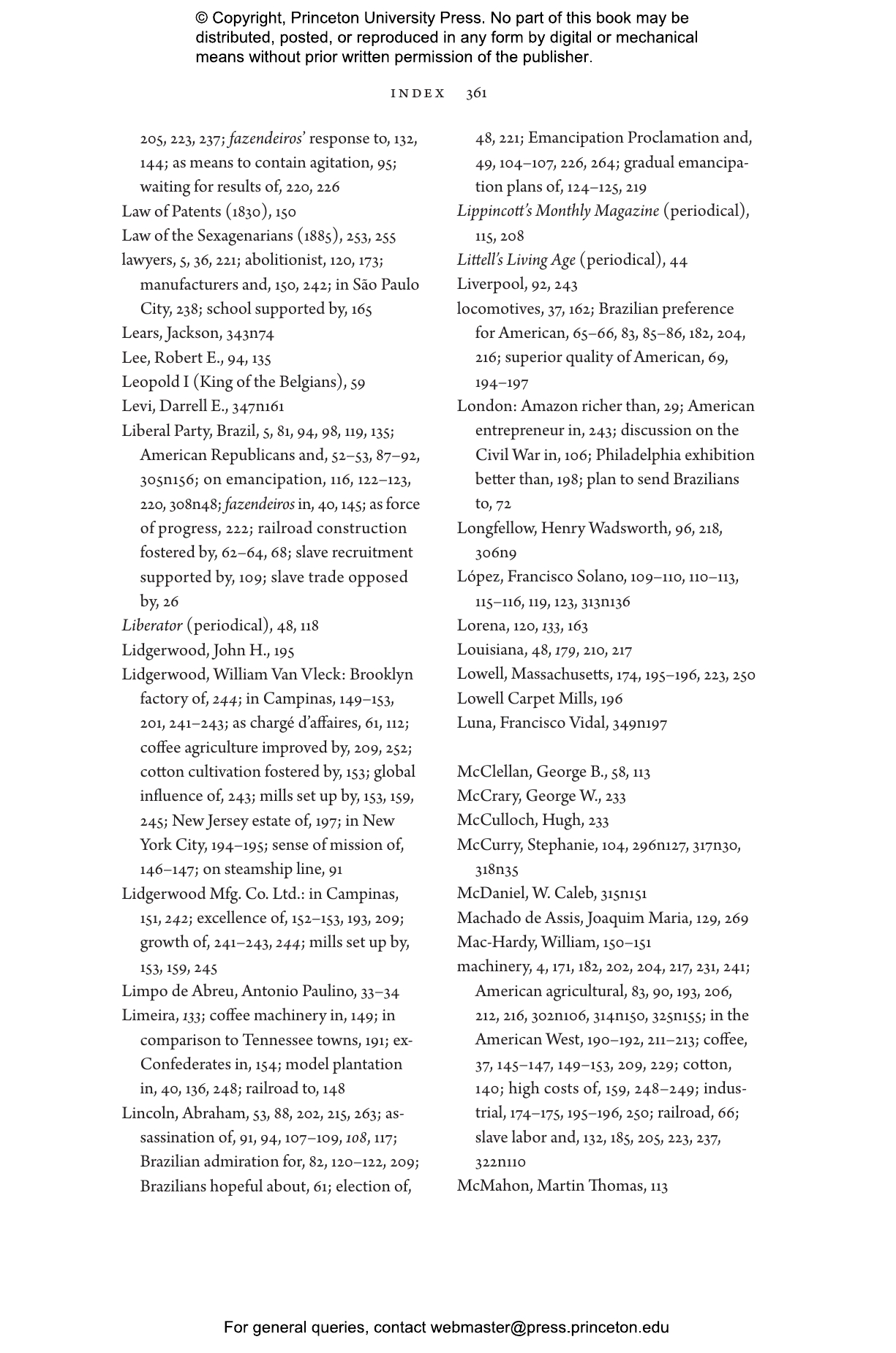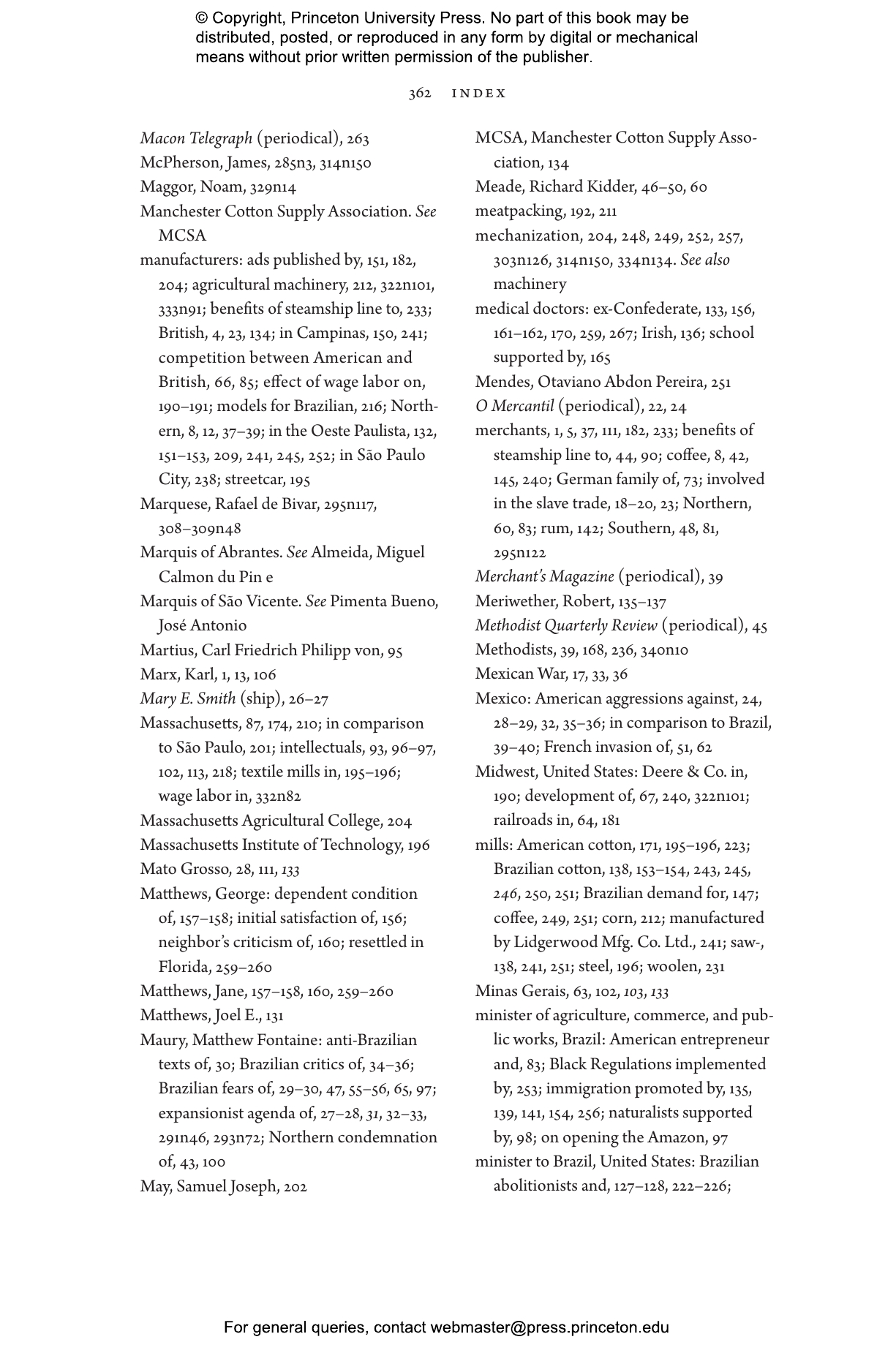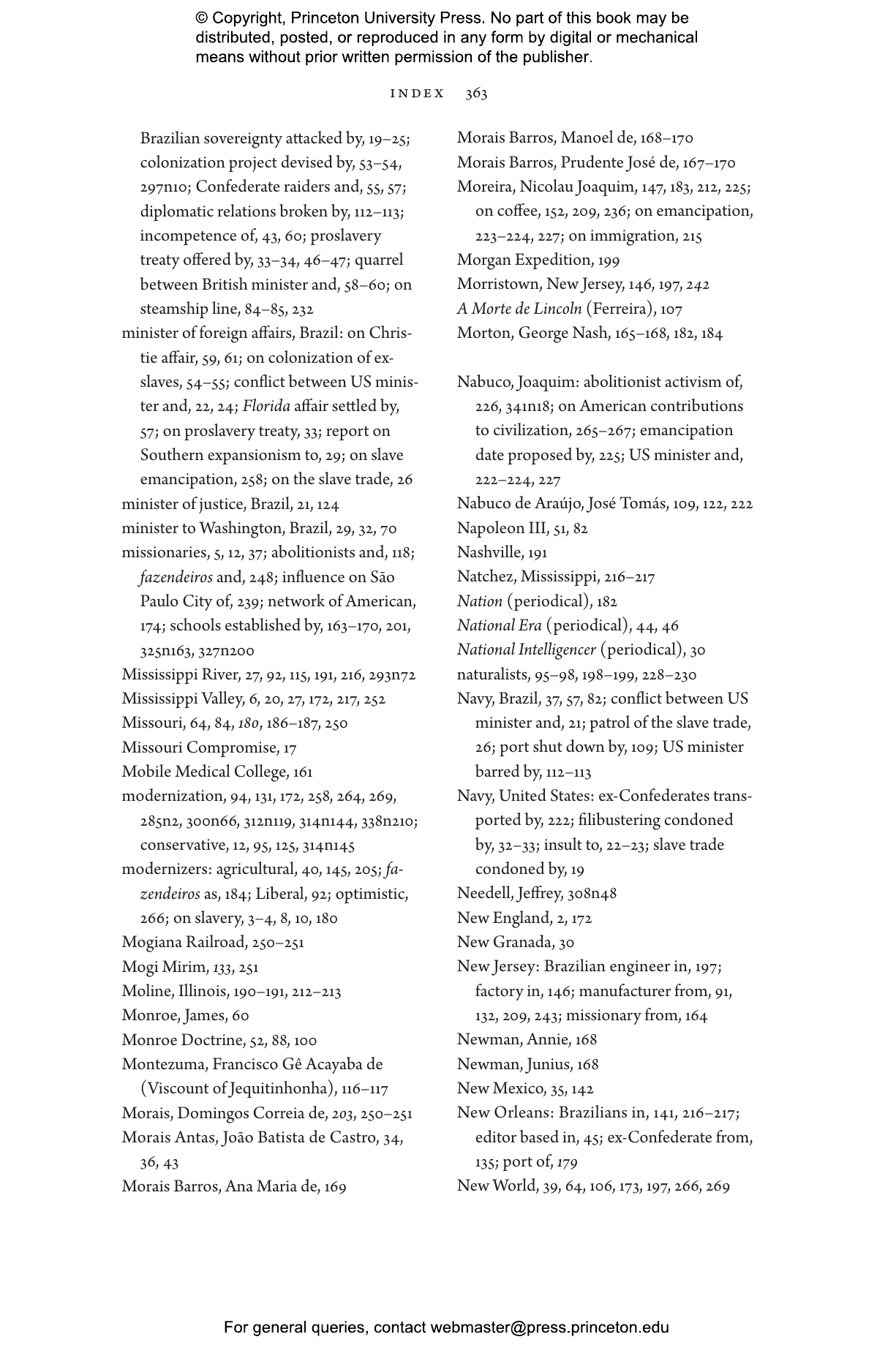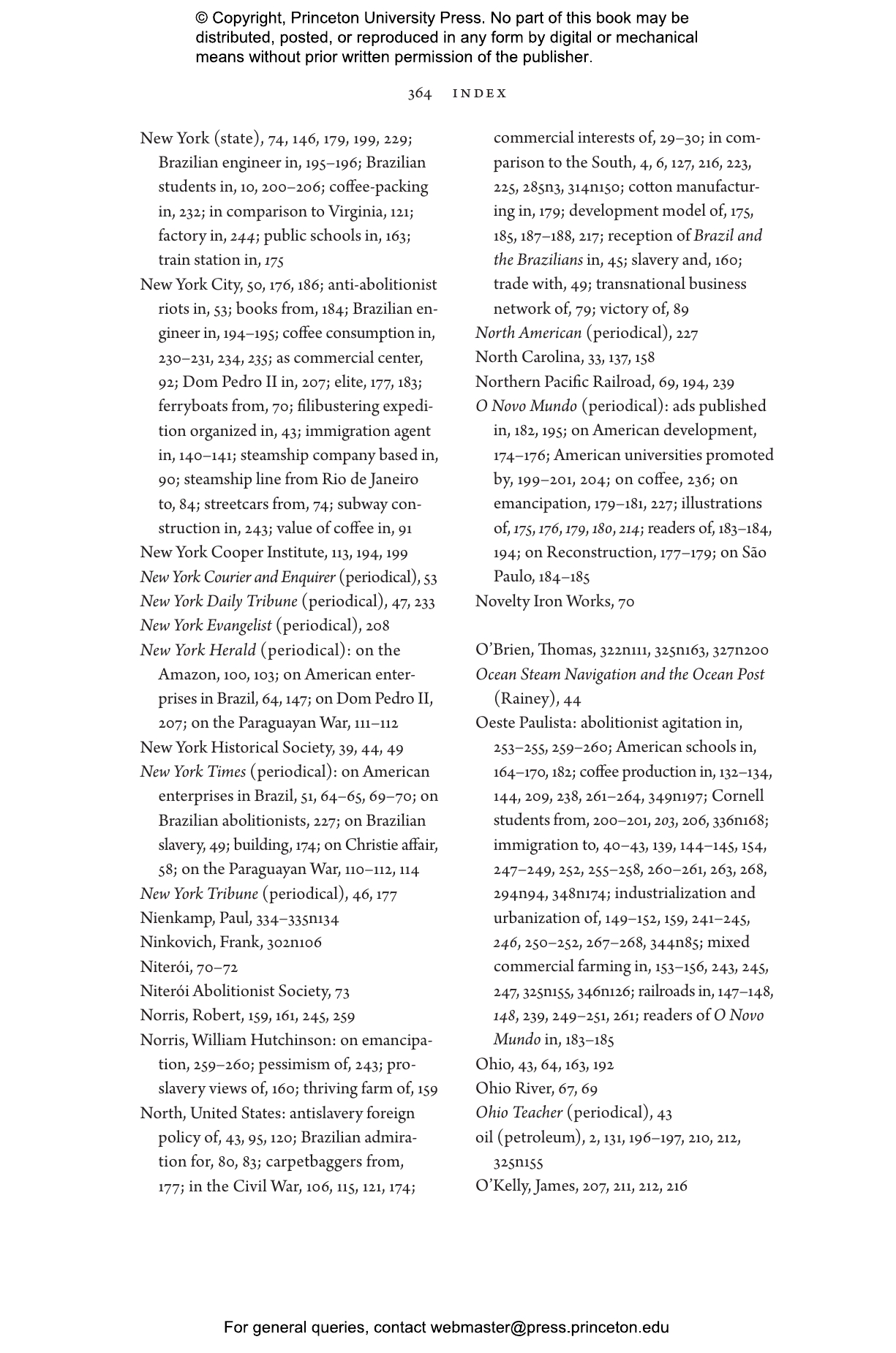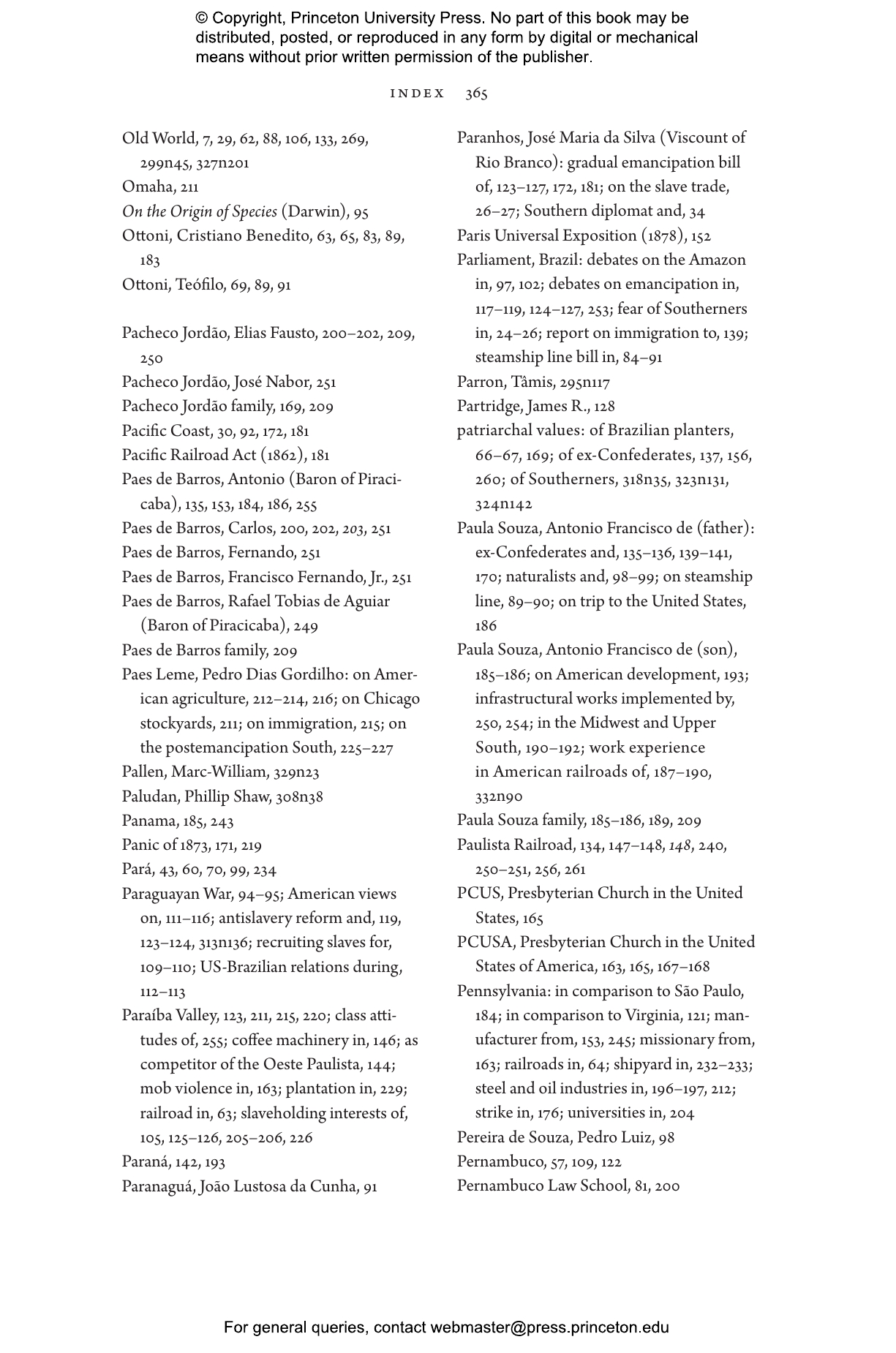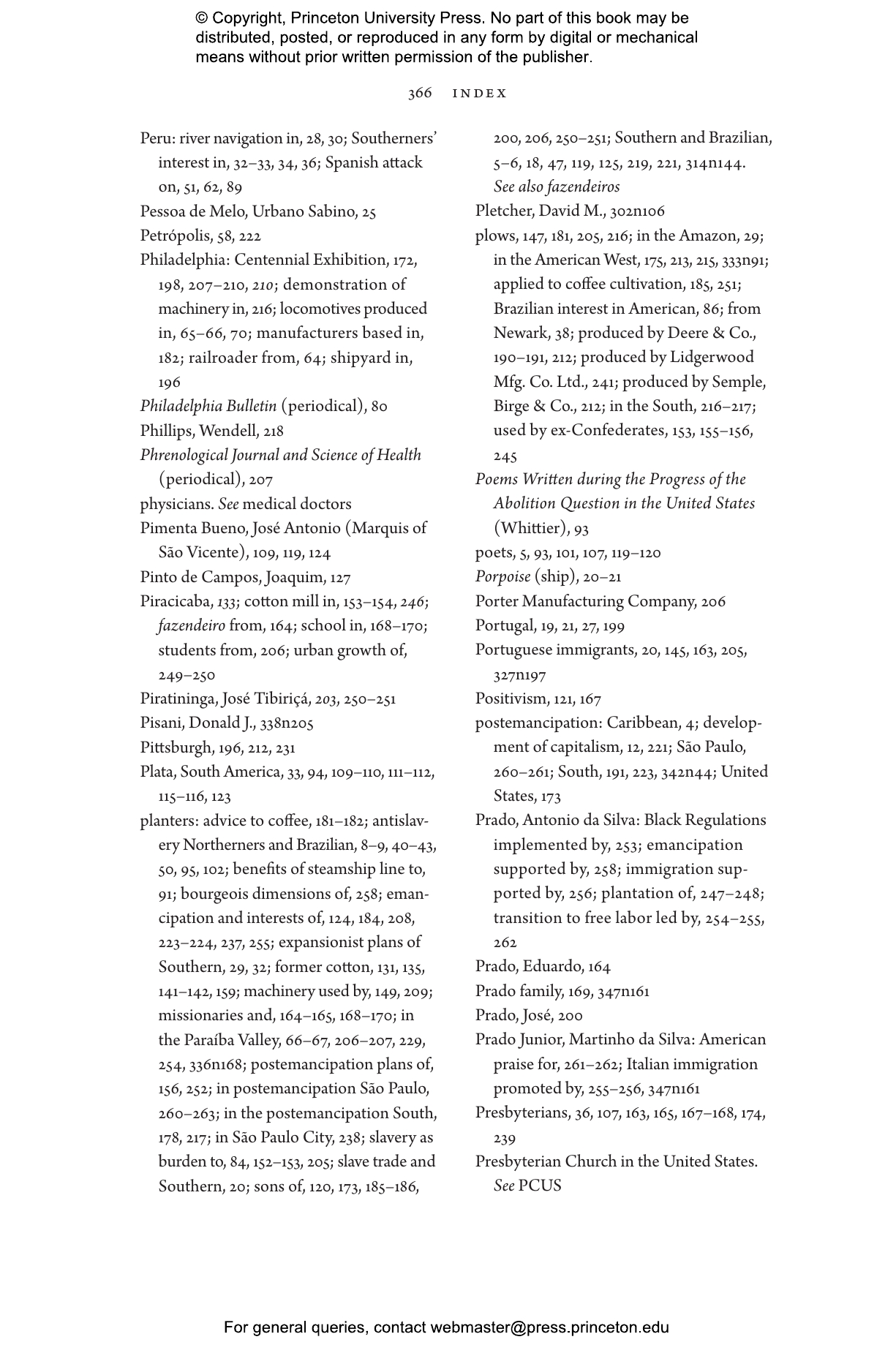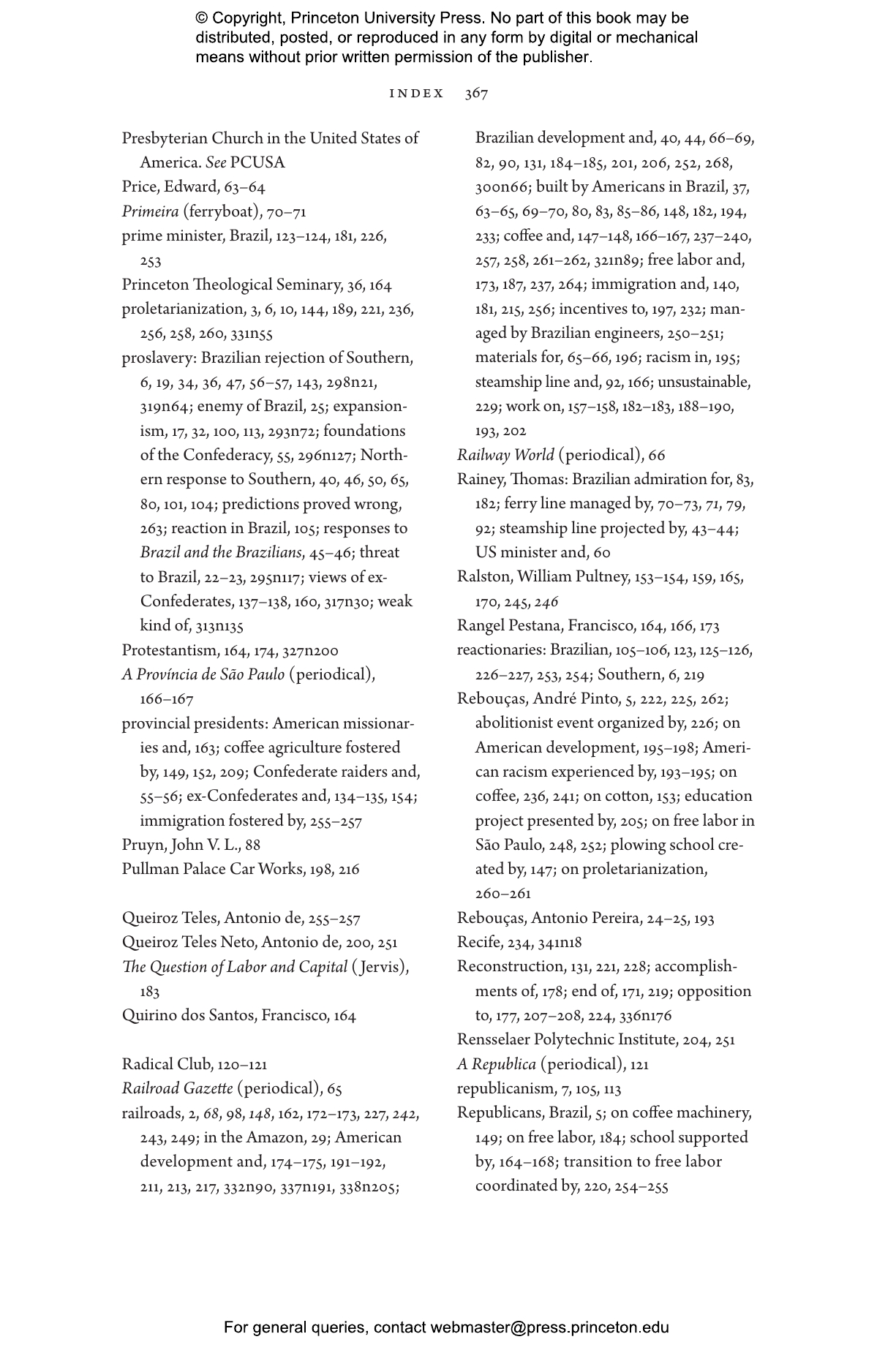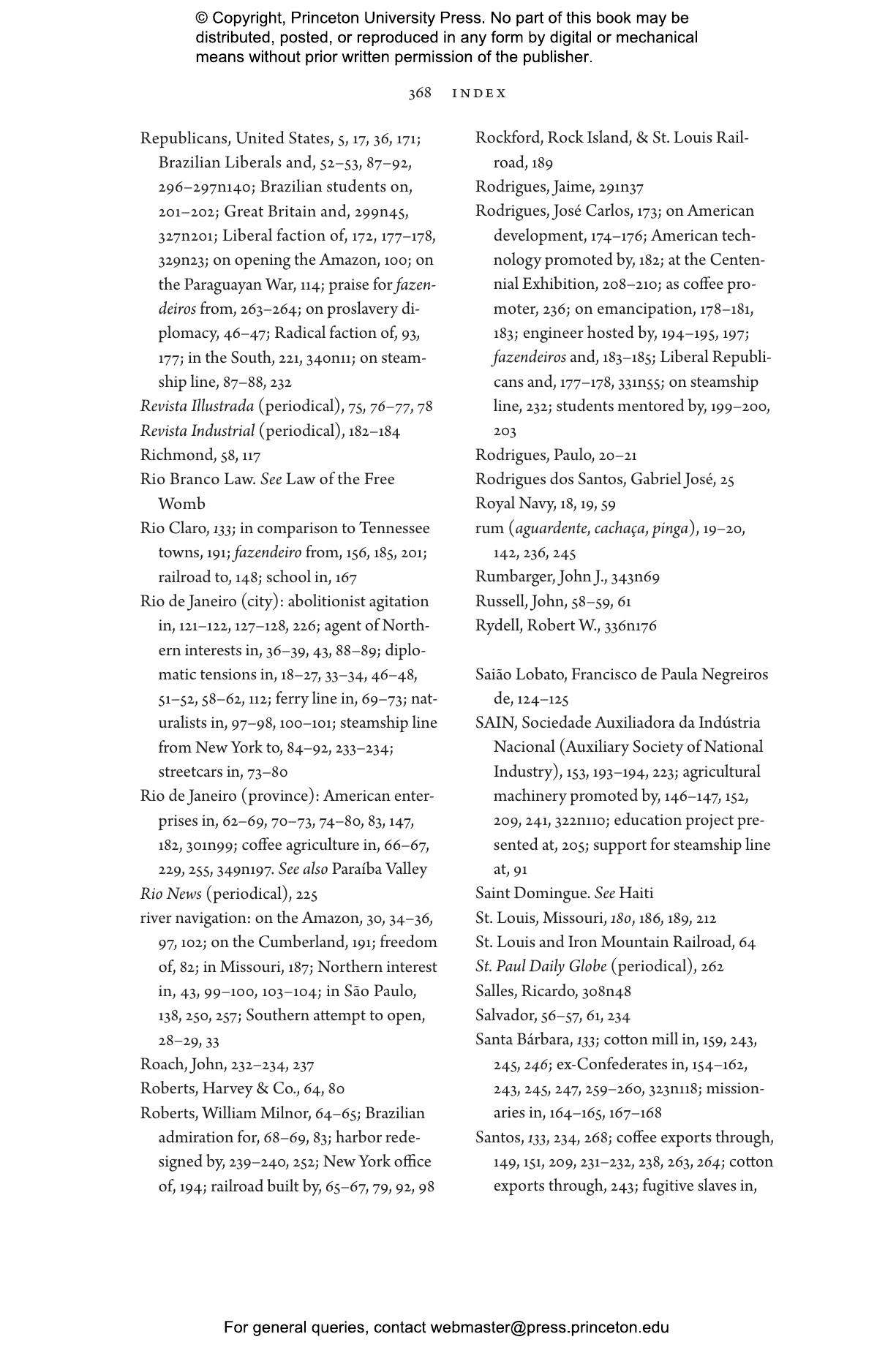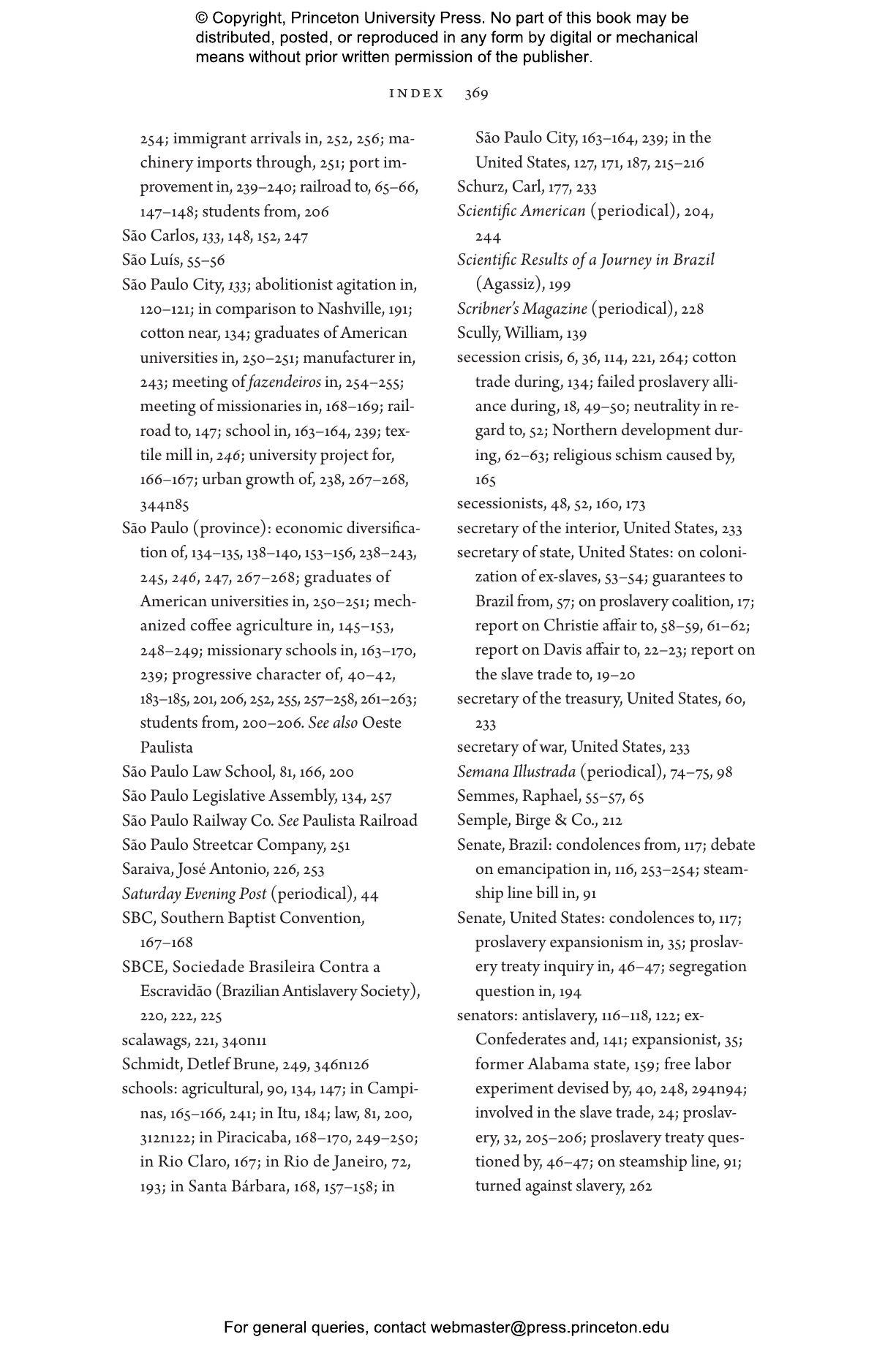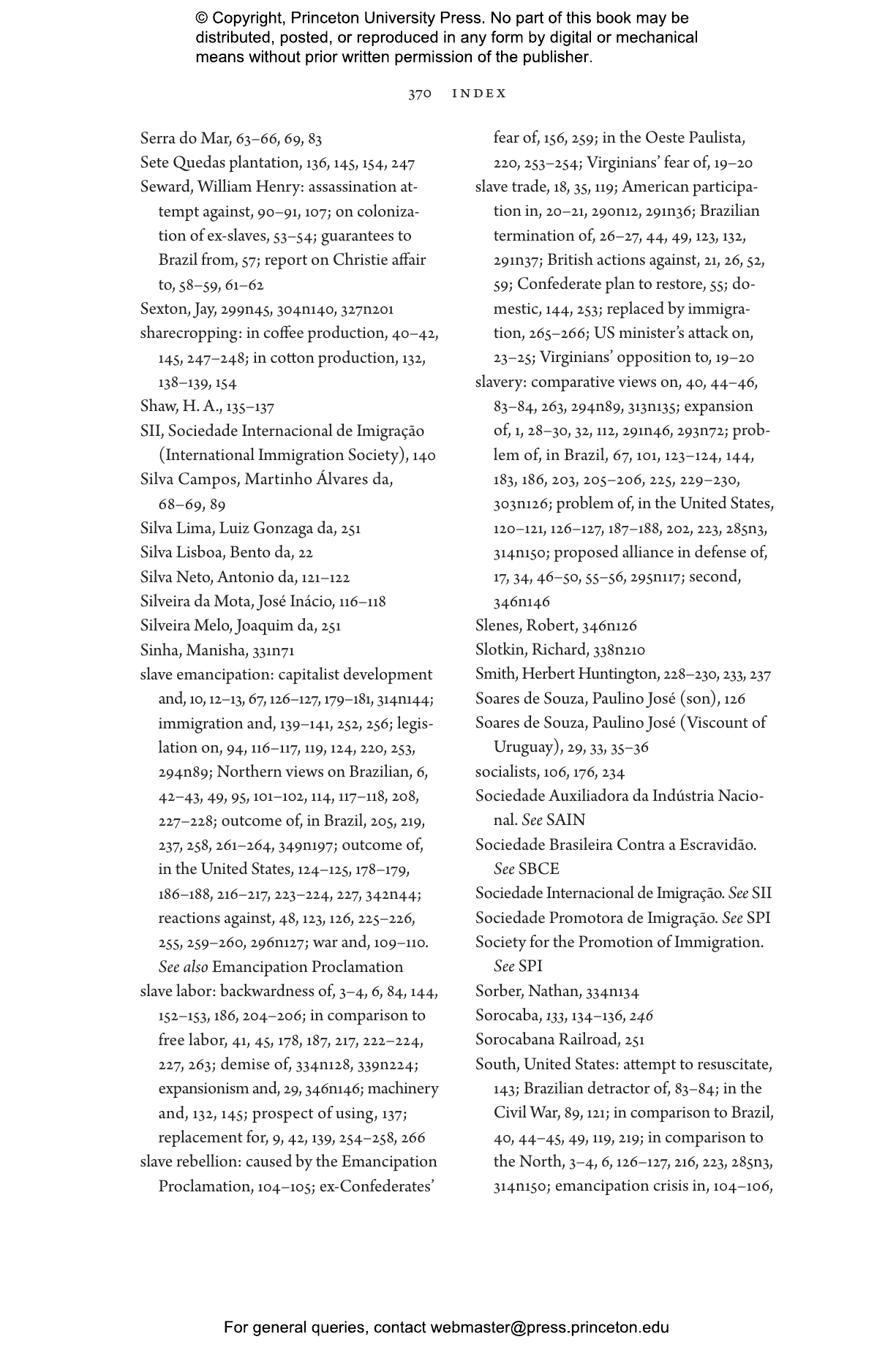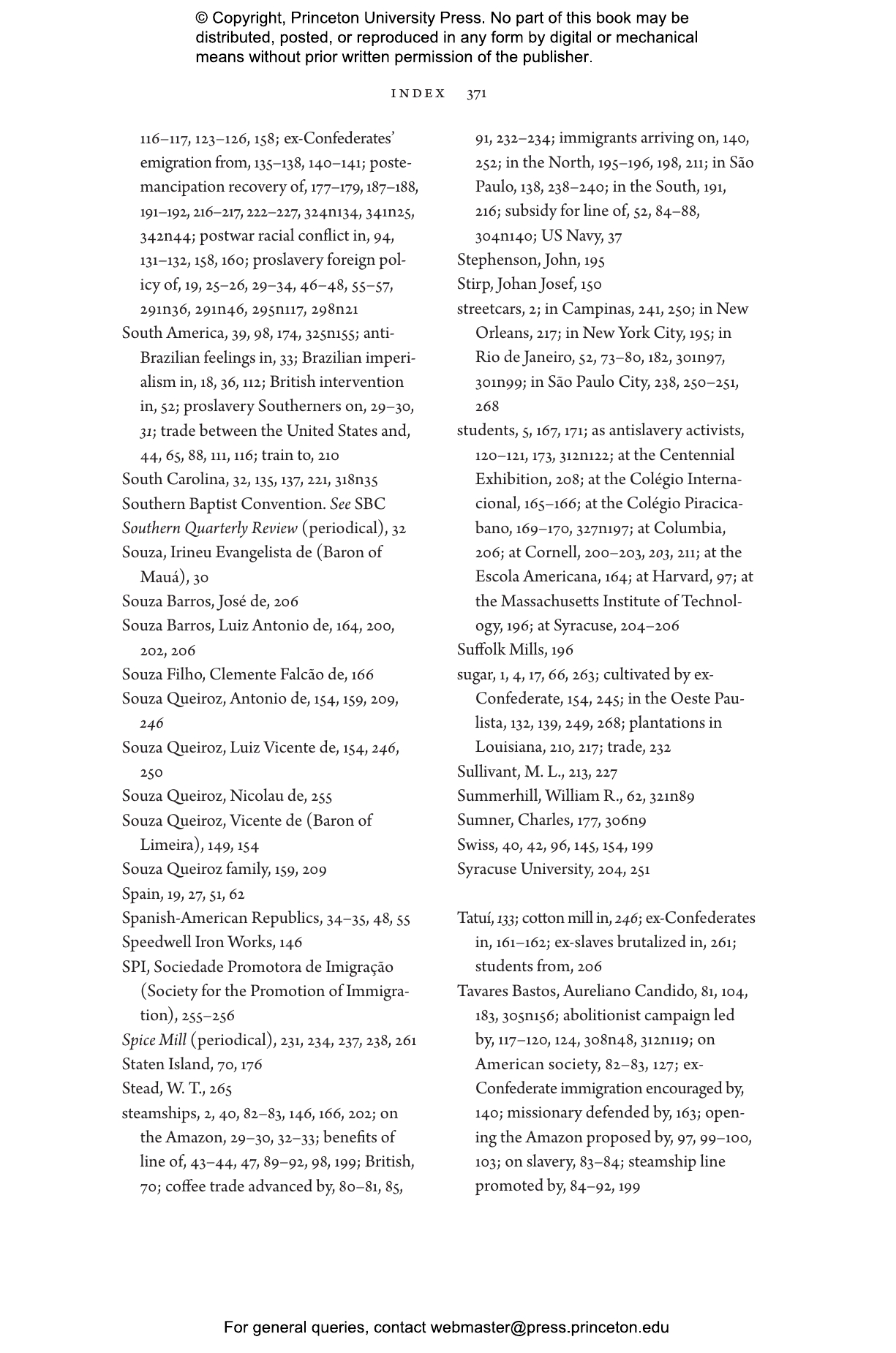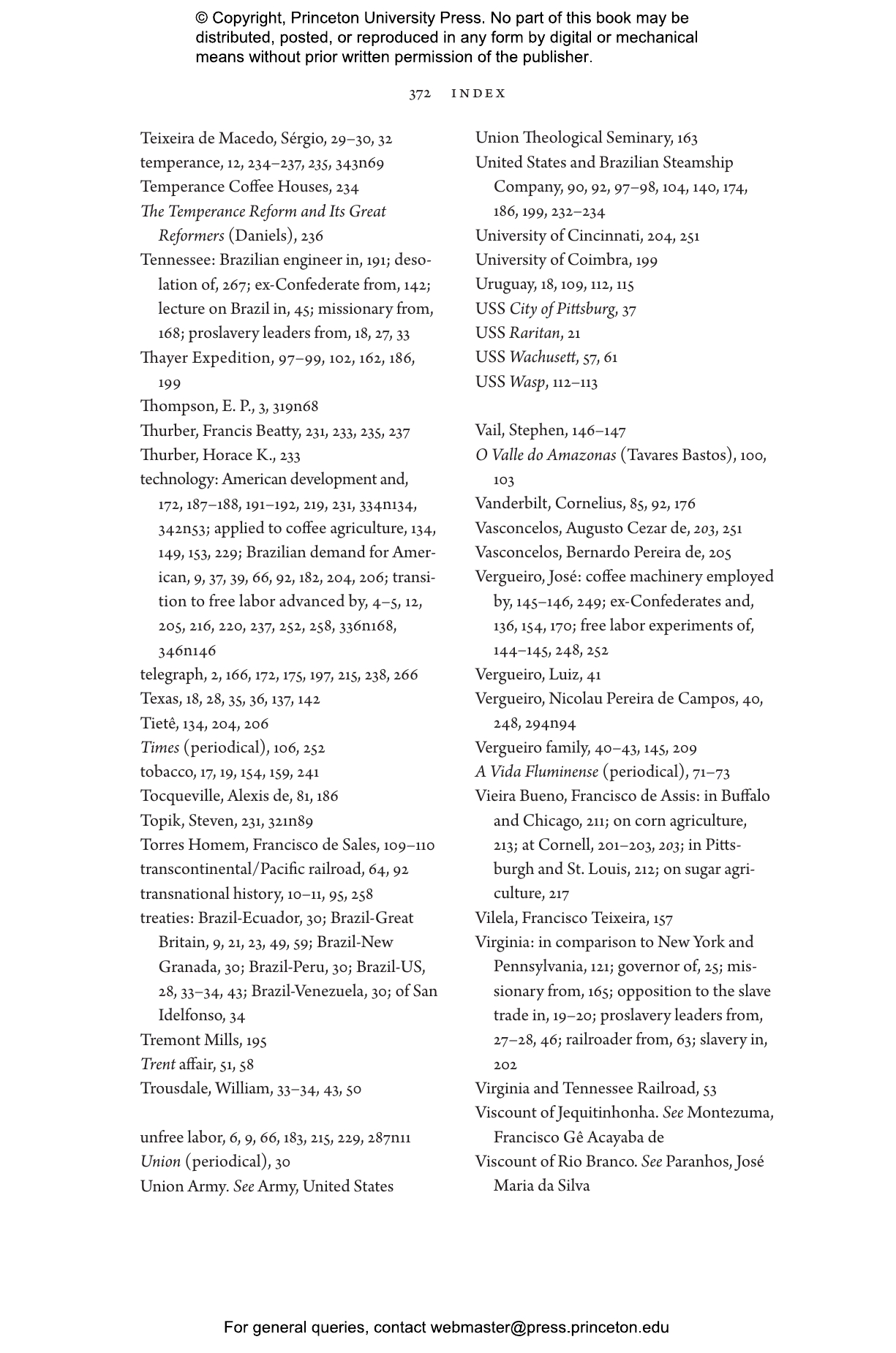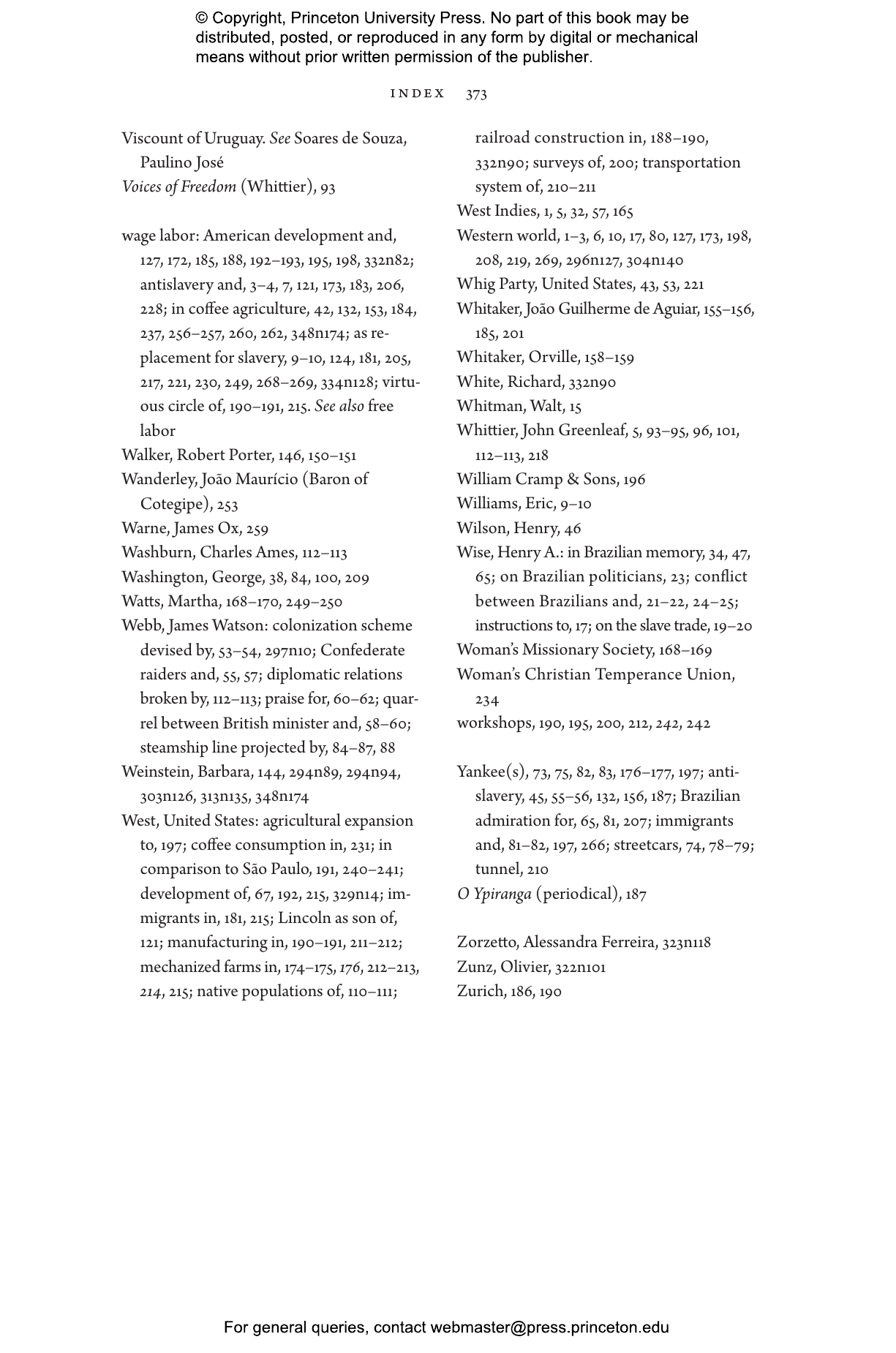American Mirror: The United States and Brazil in the Age of Emancipation
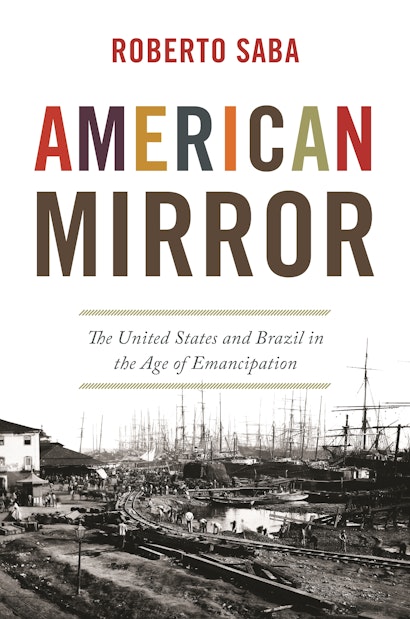

Hardcover
Paperback
ebook
- Sale Price:
- $20.97/£17.50
- Price:
-
$29.95/£25.00 - ISBN:
- Published:
- Nov 23, 2021
- Copyright:
- 2021
- 17 b/w illus. 3 tables. 1 map.
- Main_subject:
- History
30% off with code PUP30
In the nineteenth century, the United States and Brazil were the largest slave societies in the Western world. The former enslaved approximately four million people, the latter nearly two million. Slavery was integral to the production of agricultural commodities for the global market, and governing elites feared the system’s demise would ruin their countries. Yet, when slavery ended in the United States and Brazil, in 1865 and 1888 respectively, what resulted was immediate and continuous economic progress. In American Mirror, Roberto Saba investigates how American and Brazilian reformers worked together to ensure that slave emancipation would advance the interests of capital.
Saba explores the methods through which antislavery reformers fostered capitalist development in a transnational context. From the 1850s to the 1880s, this coalition of Americans and Brazilians—which included diplomats, engineers, entrepreneurs, journalists, merchants, missionaries, planters, politicians, scientists, and students, among others—consolidated wage labor as the dominant production system in their countries. These reformers were not romantic humanitarians, but cosmopolitan modernizers who worked together to promote labor-saving machinery, new transportation technology, scientific management, and technical education. They successfully used such innovations to improve production and increase trade.
Challenging commonly held ideas about slavery and its demise in the Western Hemisphere, American Mirror illustrates the crucial role of slave emancipation in the making of capitalism.
Awards and Recognition
- Winner of the Stuart L. Bernath Book Prize, Society for Historians of American Foreign Relations
- Winner of the Michael H. Hunt Prize for International History, Society for Historians of American Foreign Relations
- Winner of the Albert J. Beveridge Award, American Historical Association
- Honorable Mention for the Luciano Tomassini Latin American International Relations Book Award
